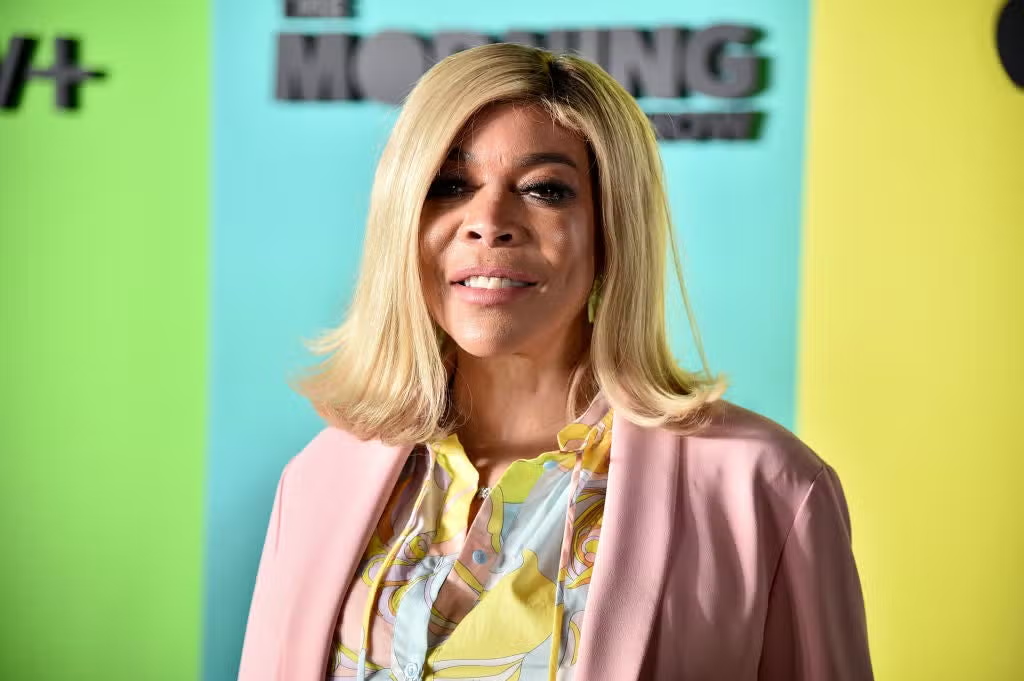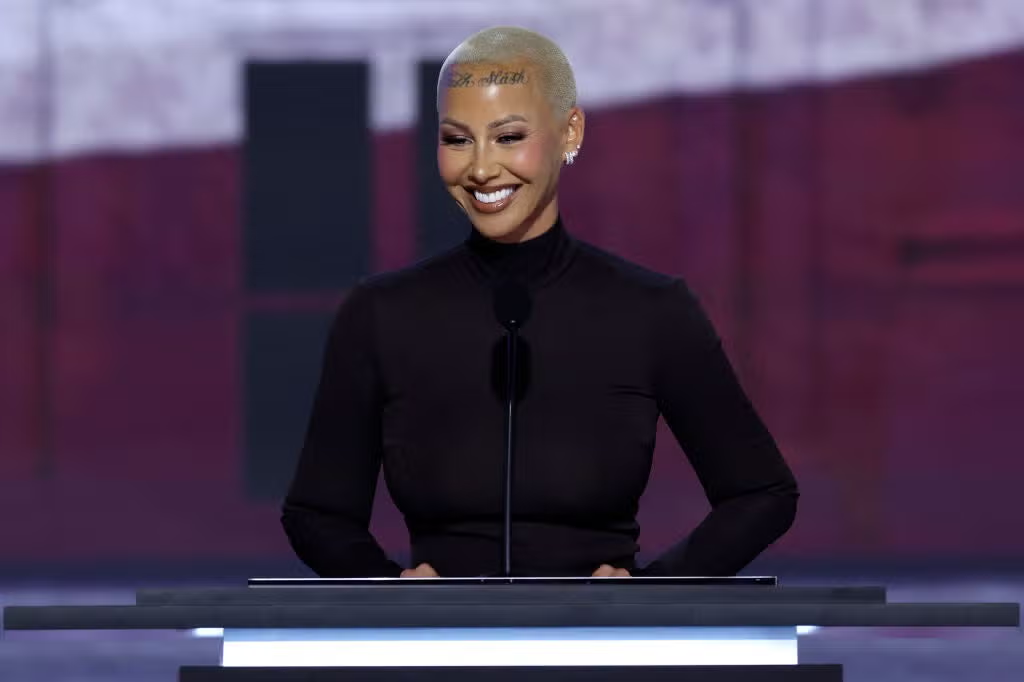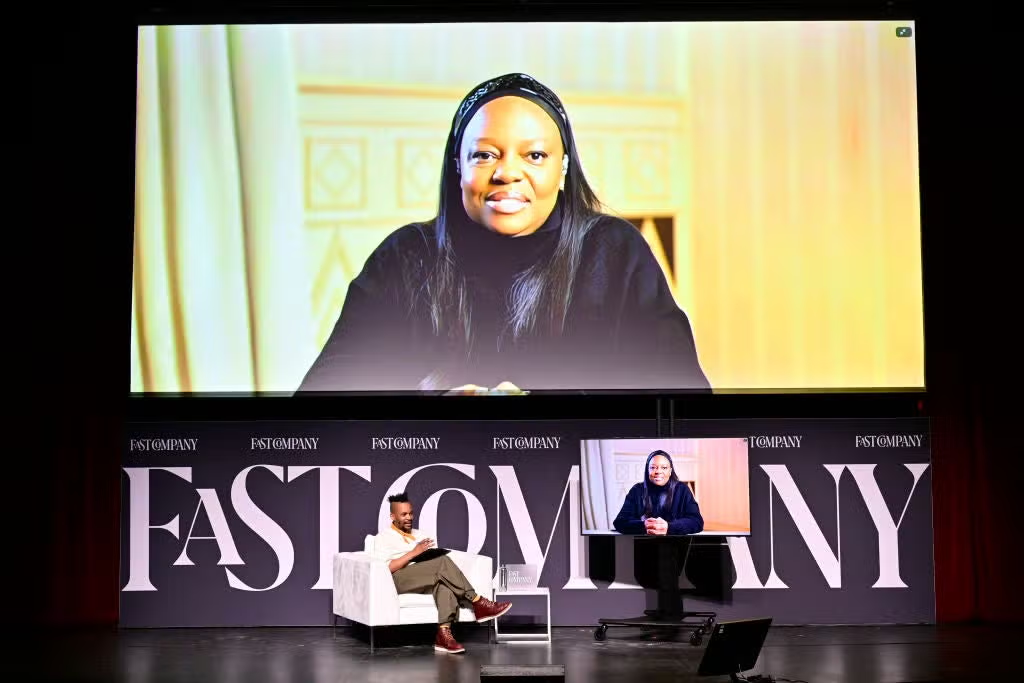50 Famous Firsts from TV History
Ever since the inception of television, broadcast TV has acted as an unofficial barometer of technological and social progress. As technology moves forward, so does the medium of television, starting…
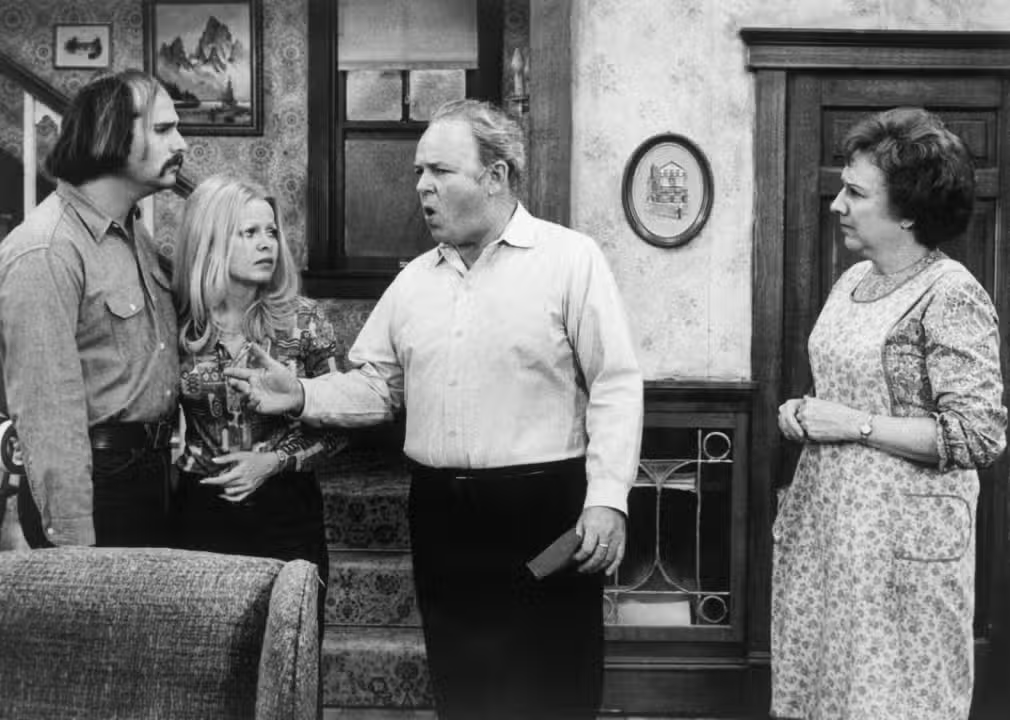
Ever since the inception of television, broadcast TV has acted as an unofficial barometer of technological and social progress. As technology moves forward, so does the medium of television, starting from black-and-white to full-on color. Standard definition turns into high definition, which turns into 4K, and analog eventually becomes digital. But there's a lot more to television than nuts and bolts: namely, an entire range of social stigmas and politics determined by television executives and policed by the FCC.
With television programs piping straight into household living rooms around the world, the images and stories brought to families serve as statements on where society is currently at; a reflection, of sorts. And as society shifts over the decades, so do the television shows reflect these shifts and changes. Taboos are no longer taboos, and television show creators gain some freedom thanks to the TV trailblazers that came before them.
Attitudes toward gender, race, and sexuality have evolved since the television was first introduced to American homes. Standards for profanity and nudity have also loosened to a degree, both on scripted television programs and in all of the ads and commercials aired in between. What seems standard today was all but forbidden in the earlier days of television, with some taboos seeming ridiculous and overprotective from our present-day point of view.
Looking back television's short by wide-ranging history, Stacker selected 50 significant firsts. Compiled from observations made by many other television critics and historians, the gallery includes firsts in television technology, easing sentiments on certain taboos, and groundbreaking creative decisions that increased representation for certain demographics. These firsts may seem menial today, but many of the moments featured here created uproar, controversy, and debate during times where this content was uncommon on the airwaves.
Read on to see some of the most impactful shows and moments that would forever change television history.
1930: First television drama
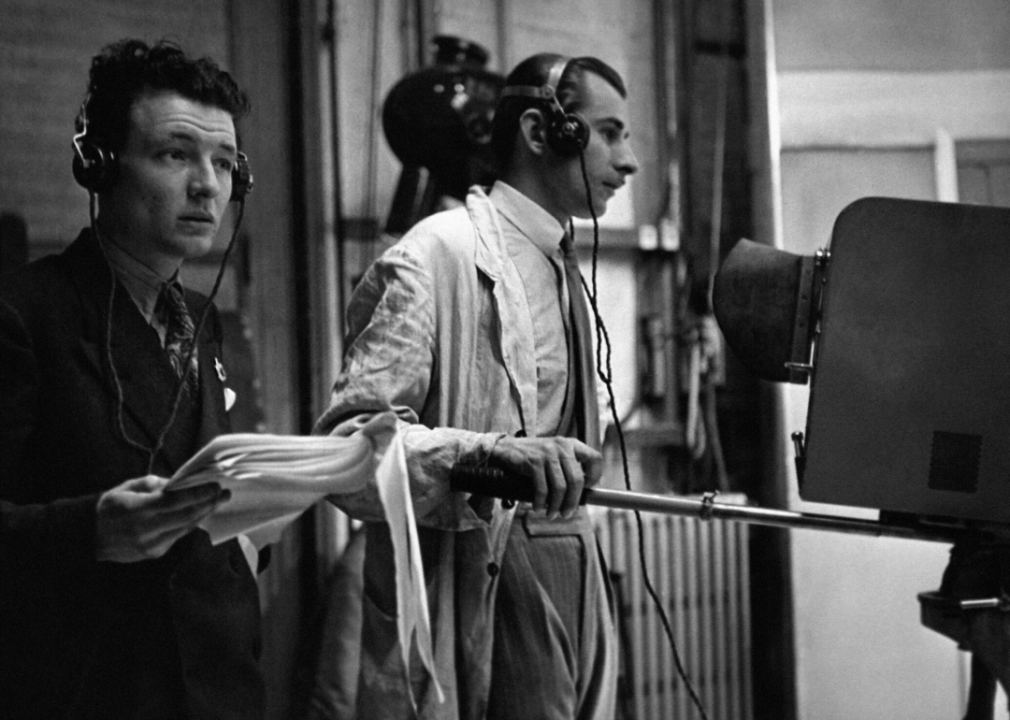
KEYSTONE-FRANCE/Gamma-Rapho // Getty Images
Drama is the fundamental storytelling building block that most scripted shows on television use, so it is fitting that the first television drama is an adaptation of a play. “The Man with the Flower in His Mouth” was originally written by Italian playwright Luigi Pirandello in 1922, but it was used in 1930 by the British Broadcasting Corporation for an experiment. Using only three characters and with a short length of half an hour, the experiment was considered a success, paving the way for future scripted television.
1936: First live sports broadcast
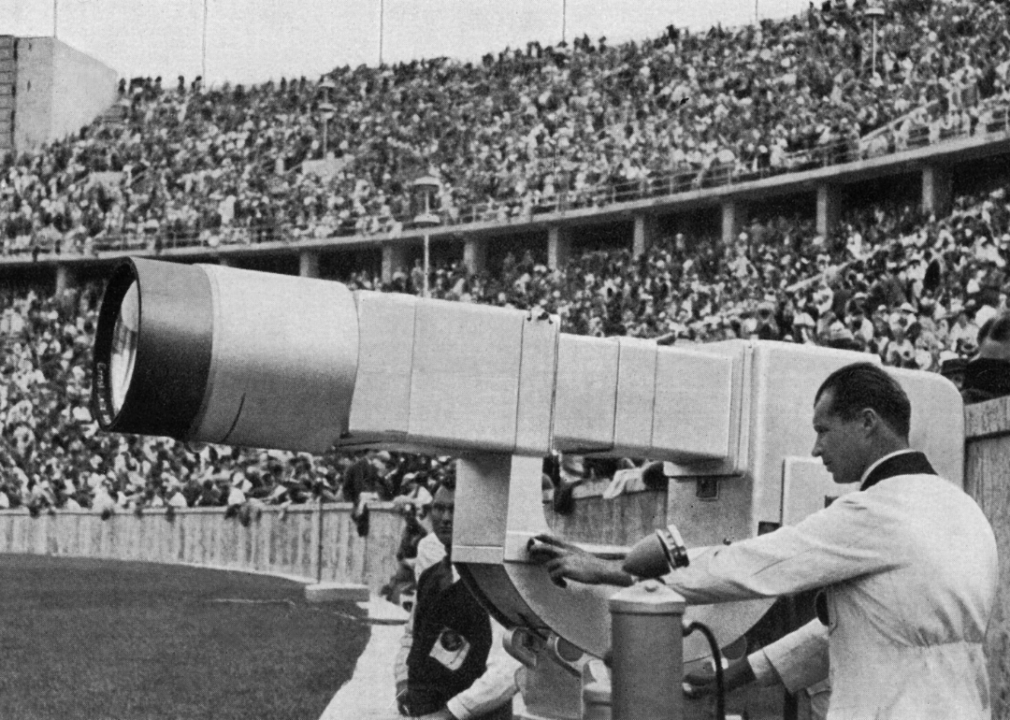
AFP via Getty Images
The 1936 Summer Olympics in Berlin made many strides to modernize the Olympics. It was not only the first Olympic Games to be broadcast on television, but the first live televised sporting event in the world. More than 70 hours of coverage were broadcasted to special rooms throughout Berlin. Three years later, the United States would have its first local televised sporting event: a college baseball game between the Columbia Lions and Princeton Tigers.
1940: First televised religious service
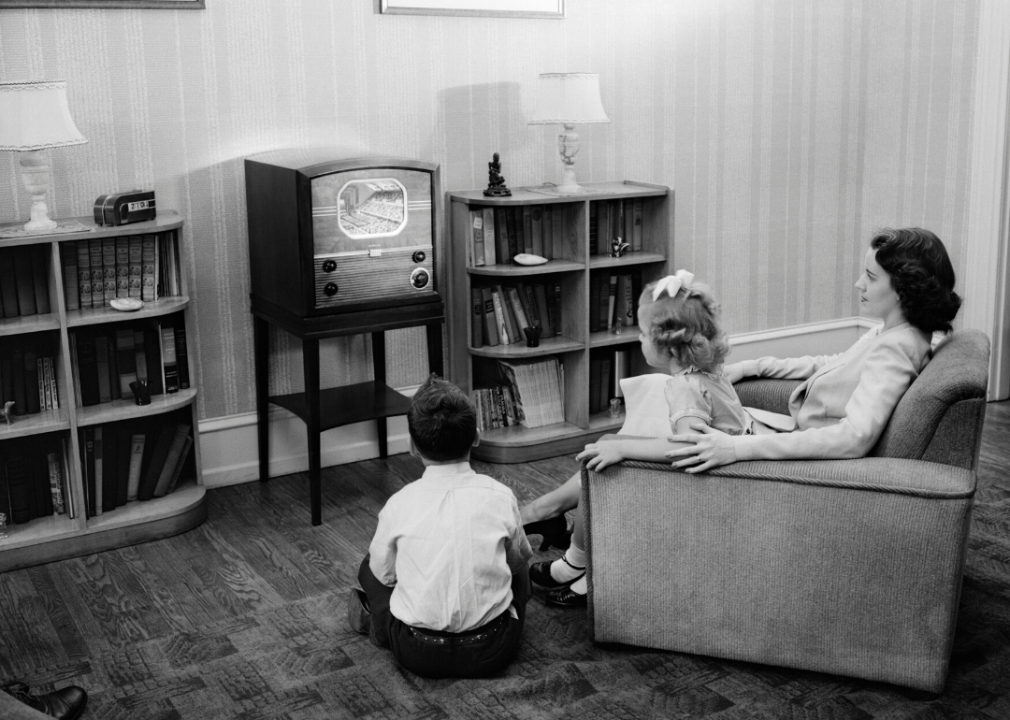
H. Armstrong Roberts/ClassicStock // Getty Images
Long before the televangelists came about, standard religious services were broadcasted for the public. The Protestant Easter Services March 24, 1940, were the first religious service to be aired, on NBC in New York. Just an hour later, the Roman Catholic Easter Services were also televised.
1941: First televised commercial
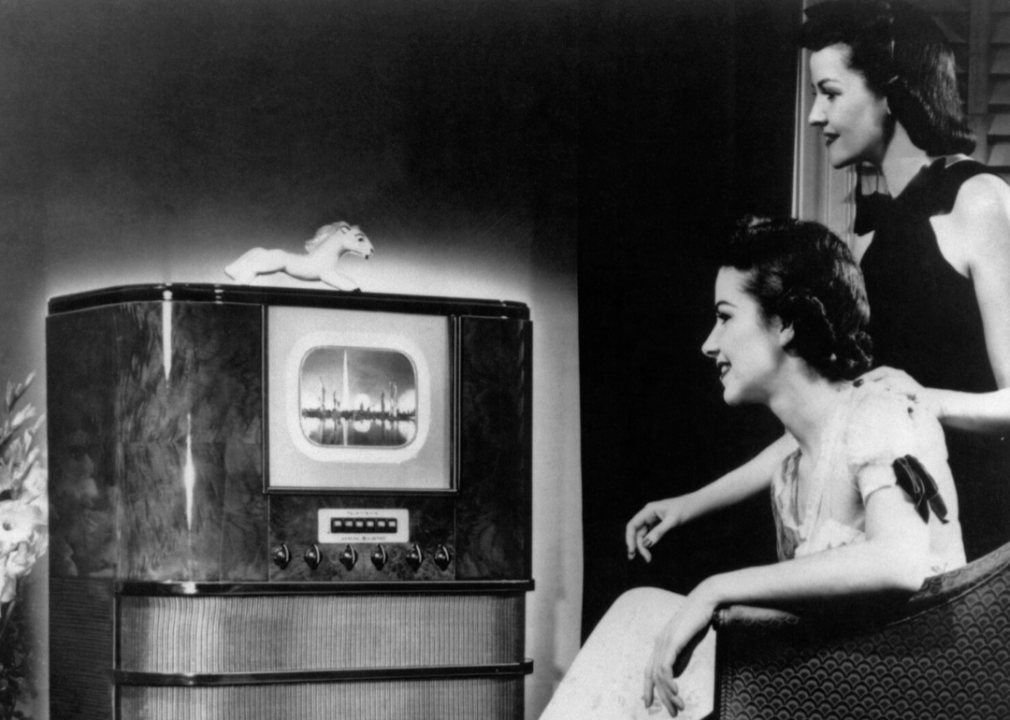
Corbis // Getty Images
Watch company Bulova is responsible for the first television commercial, advertising their watches on July 1, 1941, the first day on which commercial advertising was allowed on television. The commercial, which aired during a Brooklyn Dodgers and Philadelphia Phillies game, cost between what was then $4 and $9 and touted the phrase “Bulova.” Of course, television ads and commercials are an essential part of the television ecosystem to this day.
1944: First original musical
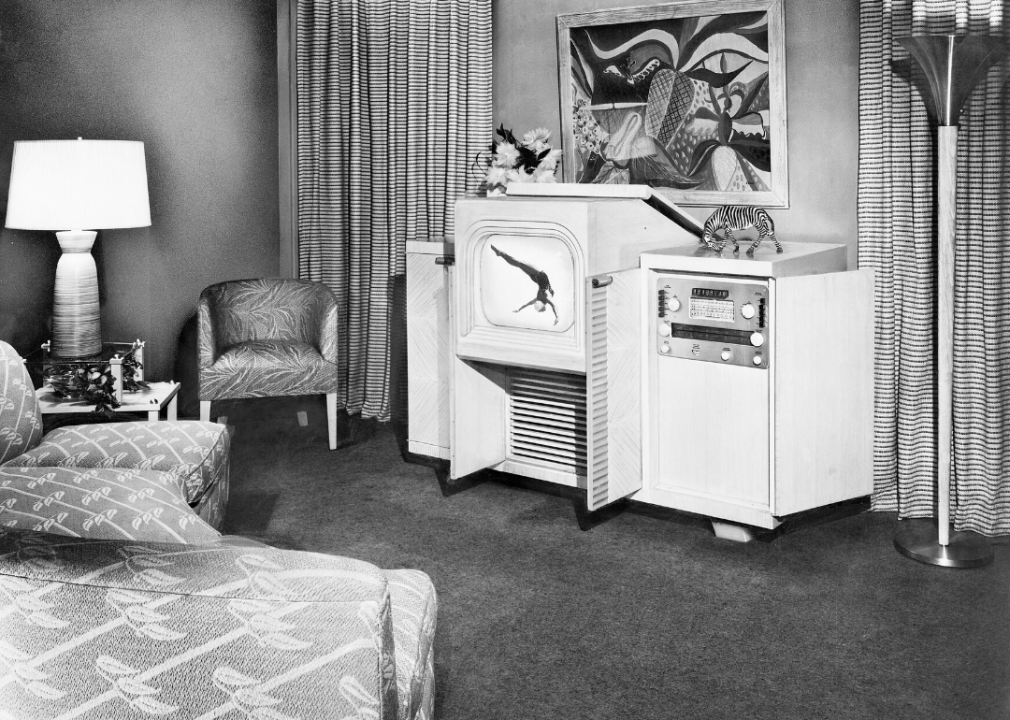
Bettmann // Getty Images
The early days of television were full of experimentation with a variety of formats, with one of the most prominent ones being that of the musical. “The Boys from Boise” is thought to be the first one of these, airing Sept. 28, 1944, on the New York DuMont station. With a cast of 20 and a budget of $10,000, “The Boys from Boise” was an ambitious production, but still significant; recent years have brought a revival of televised musicals.
1947: First televised children’s show
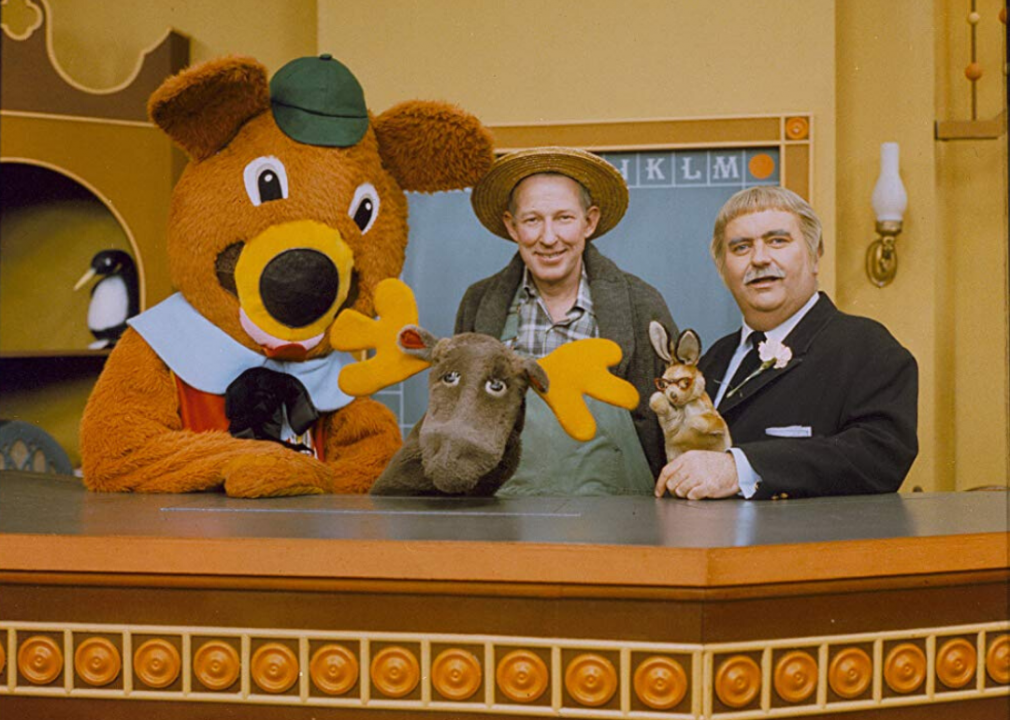
Keeshan-Miller Enterprises
Not too many television shows can claim to be the first created for children, but some early innovators include puppet shows “Kukla, Fran and Ollie,” “Howdy Doody,” and “Captain Kangaroo.” These shows would feature friendly hosts, casts of colorful characters and props, making way for future shows such as “Sesame Street” and fare from the likes of Disney and Nickelodeon.
1947: First marriage bed
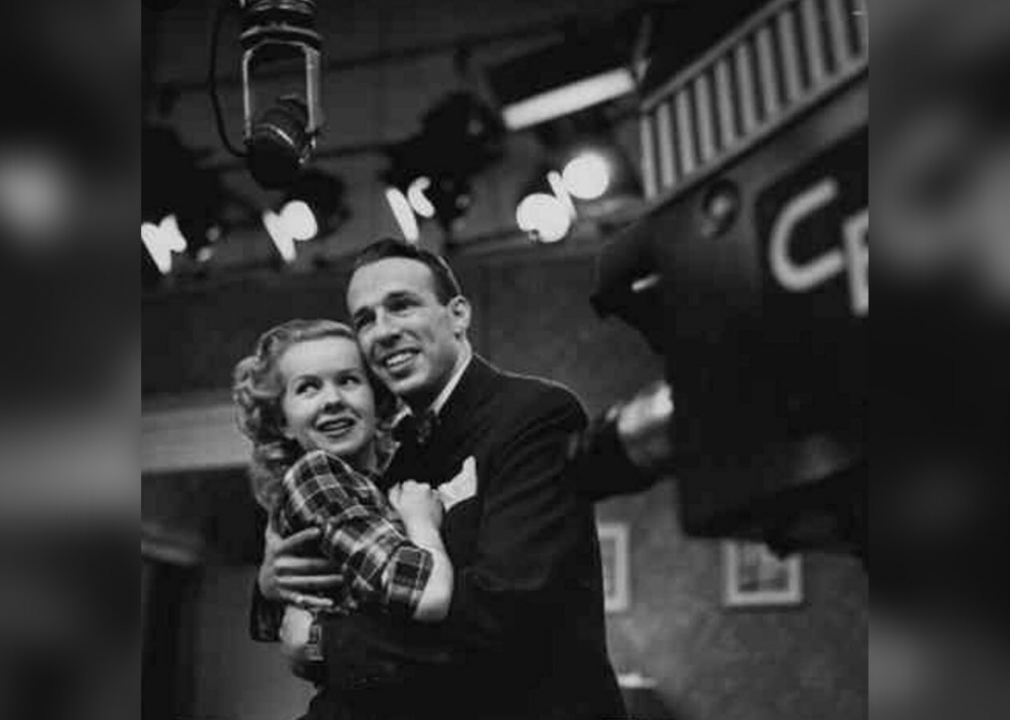
CBS
It certainly wouldn’t be looked down on today, but depicting a couple sharing a bed together was a television taboo. While “Mary Kay and Johnny,” the first sitcom broadcast on network television had the eponymous married couple share a bed in 1947, it would take until the 1960s for other mainstream television shows to do the same.
1947: First evening news show
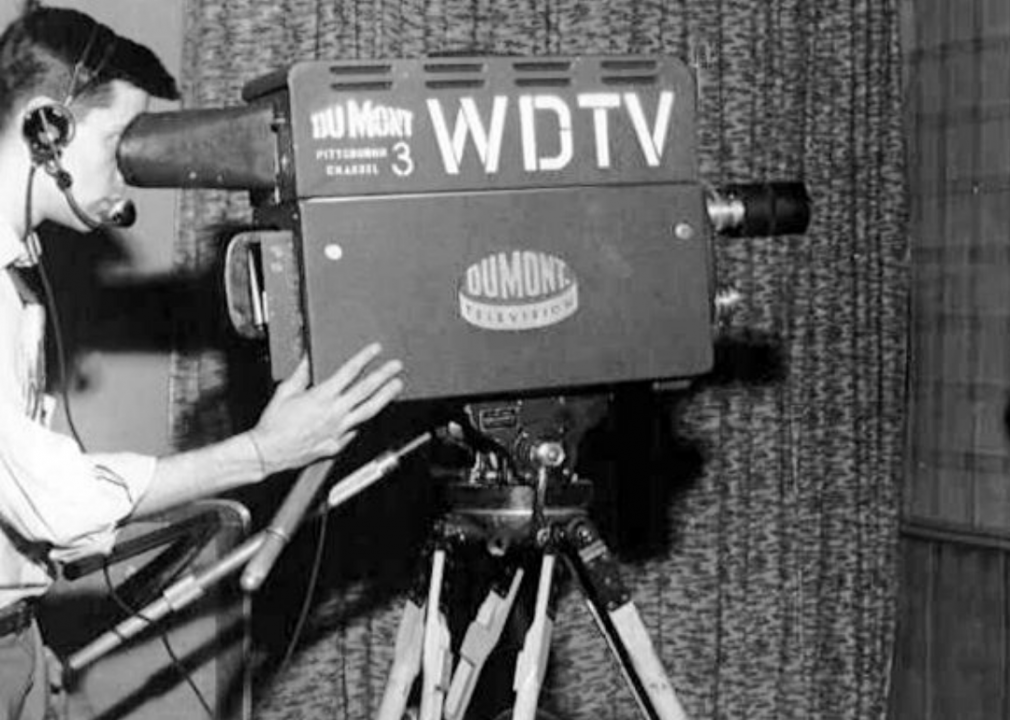
Judd Sheppard
Airing on the long-defunct DuMont Television Network, “The Walter Compton News” was thought to be the first evening news show broadcasted on television. The 15-minute newscast aired with minimal production from Washington D.C. with movie publicist Walter Compton reading from a script and accompanied by the occasional slide. The program only aired for about six months before its end, and no episodes are known to have survived.
1950: First show to use a laugh track
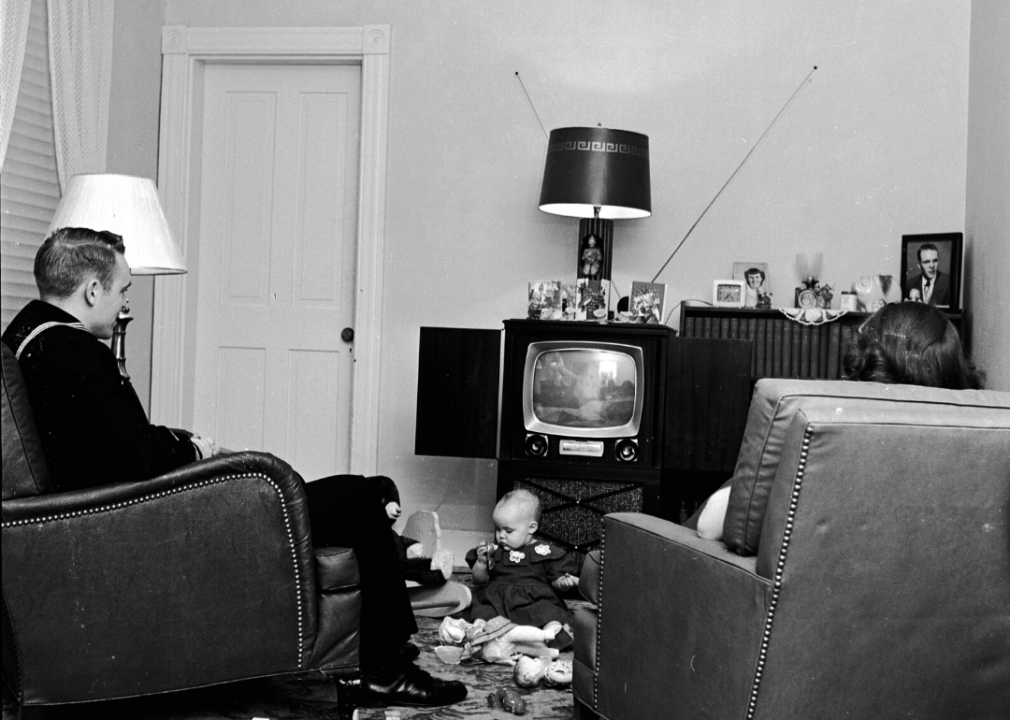
Orlando /Three Lions // Getty Images
Pre-recorded “canned” laughter was used in radio to recreate the atmosphere of live comedy shows, allegedly born from Bing Crosby’s radio show to “save the laughs.” For television, this technique was utilized for “sweetening,” as some shows would be filmed from different angles with one camera and laugh patterns would differ with each take. “The Hank McCune Show” was the first such television show that used a laugh track.
1950: First cartoon on TV
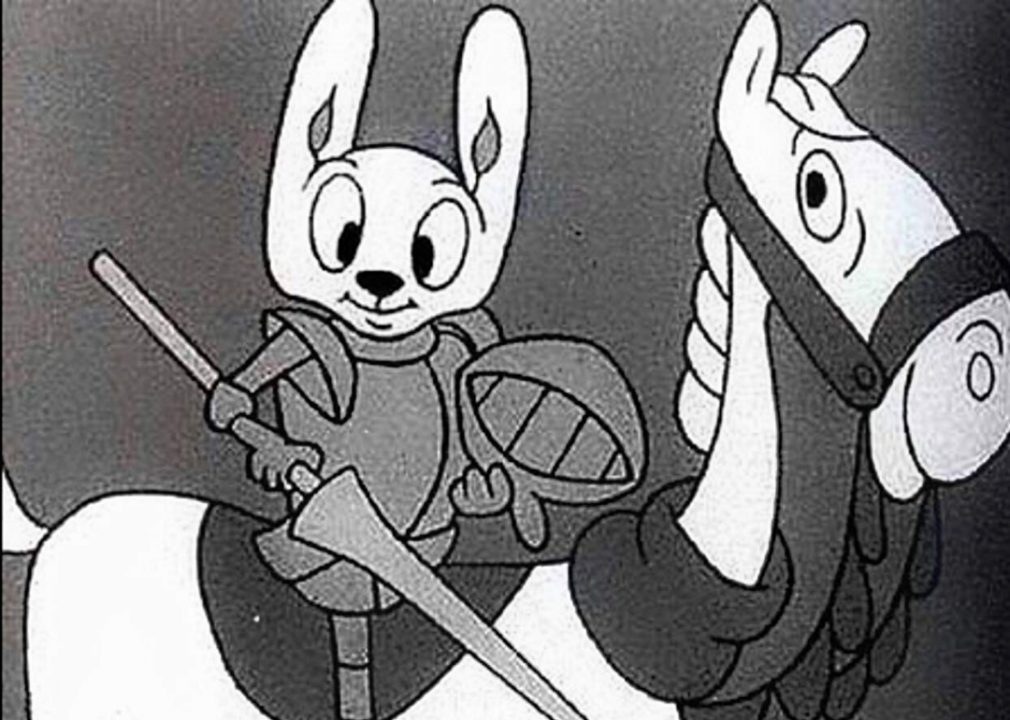
Creston Studios
While animated feature films were not unusual by the late 1930s and 1940s, it would take several years more for a fully-fledged animated TV show to make it on air. “Crusader Rabbit” was the first of its kind, featuring an adventurous rabbit in several stories that satirized movie serials. One of the show’s producers, Jay Ward, would go on to create “The Rocky and Bullwinkle Show.”
1951: First color TV broadcast
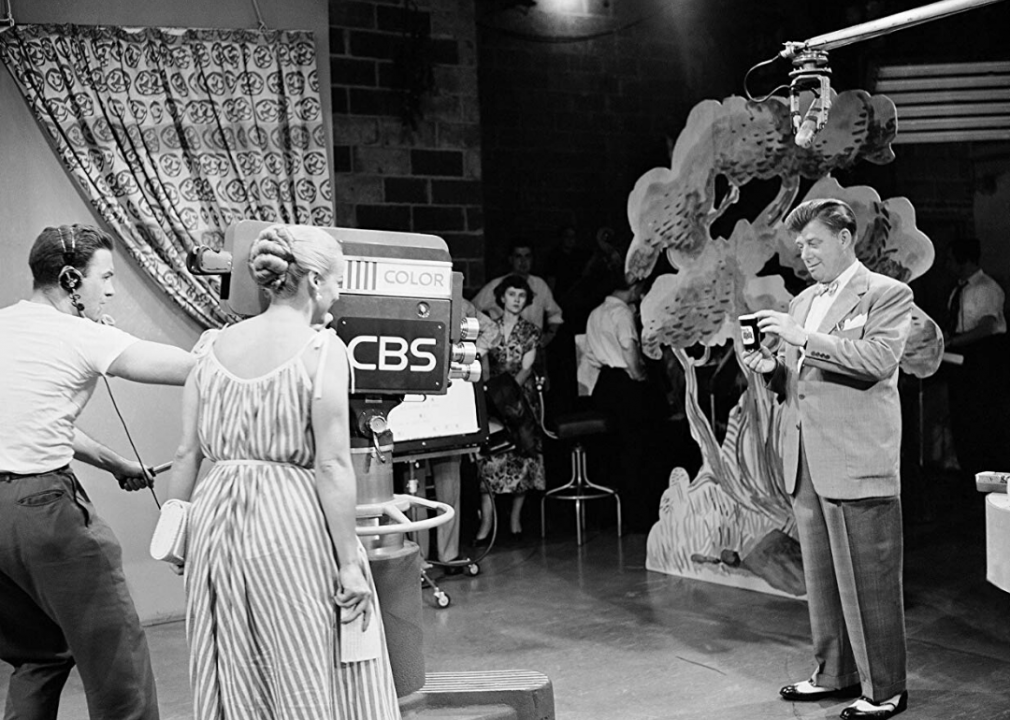
CBS
The 1960s was when color television took hold of the industry, but broadcasting companies had dabbled with the technology early in the 1950s. At exactly 4:35 p.m. on Monday, June 25, 1951, CBS aired an hour-long program entitled “Premiere” in New York City, Boston, Philadelphia, Baltimore, and Washington as the first commercial color broadcast. The variety show directly promised to audiences that color television was truly the future and featured figures such as Faye Emerson and Ed Sullivan as presenters.
1951: First talk show
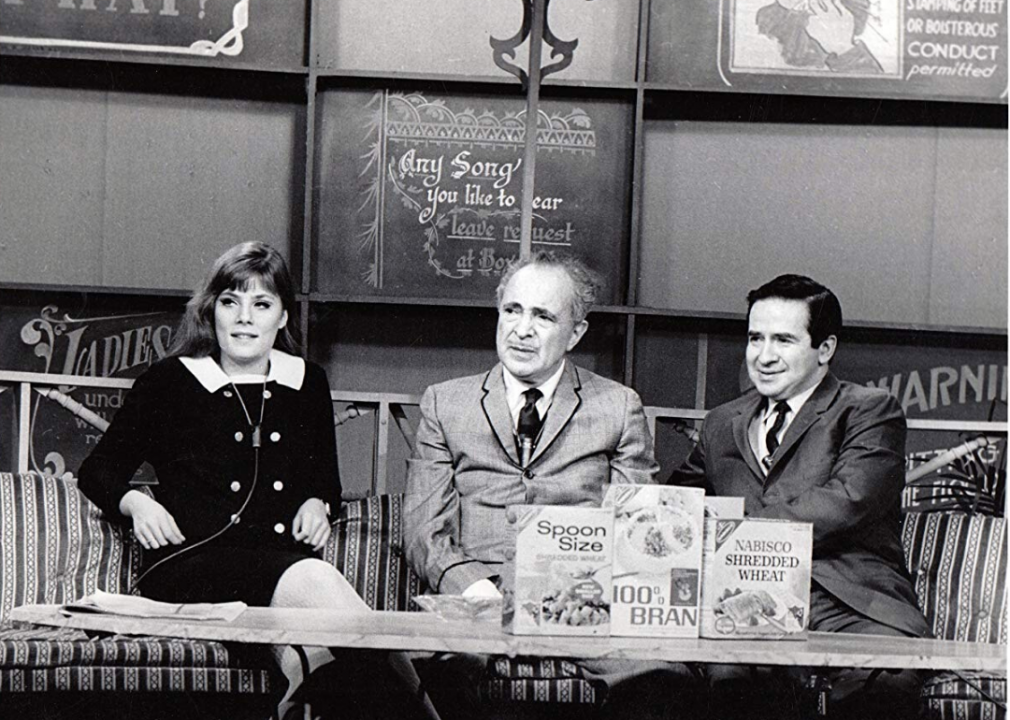
ABC
p>Radio broadcaster Joe Franklin became the host of the first televised talk show, simply named “The Joe Franklin Show.” Lasting until 1993, the show is one of the longest uninterrupted runs, starting as a daytime talk show and moving to late-night. Franklin became somewhat of an icon, even being parodied by Billy Crystal on “Saturday Night Live” and making cameo appearances as himself in films like “Ghostbusters.” Today, a number of daytime chat shows and comedy late-night talk shows crowd the airwaves.
1951: First show filmed for a live studio audience
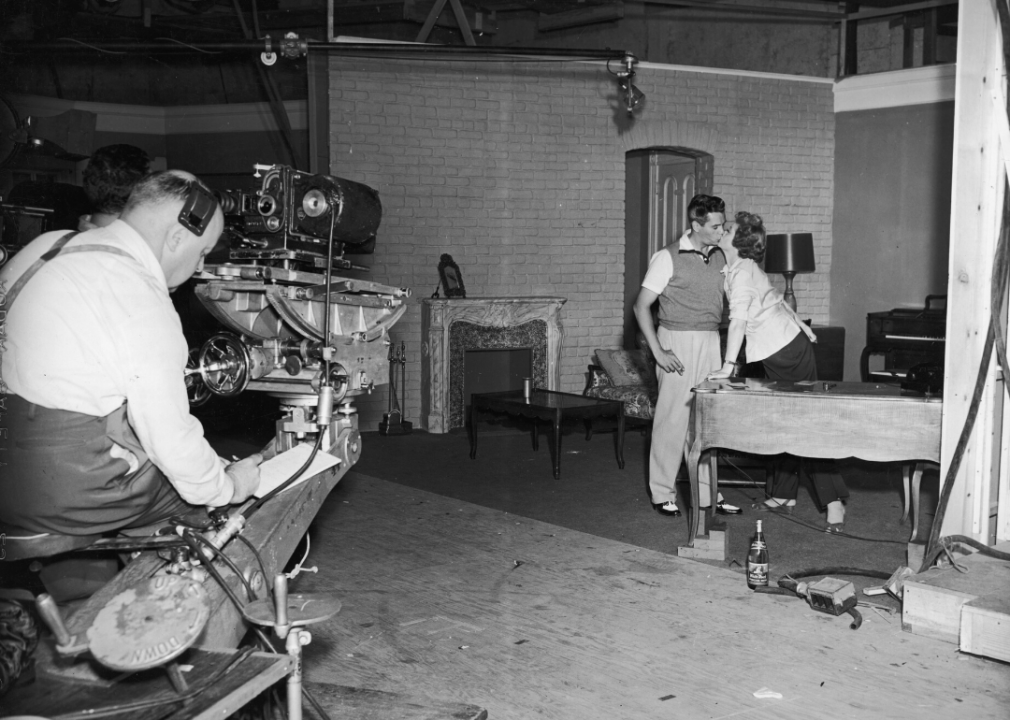
Paramount Pictures // Getty Images
“I Love Lucy” brought a number of famous TV firsts, among them the distinction of being the first show to be filmed in 35mm in front of a live studio audience. What made this show’s approach groundbreaking was the use of a multi-camera format, which essentially married television production with stage play technique and became common use in the decades to follow.
1952: First early morning network news show
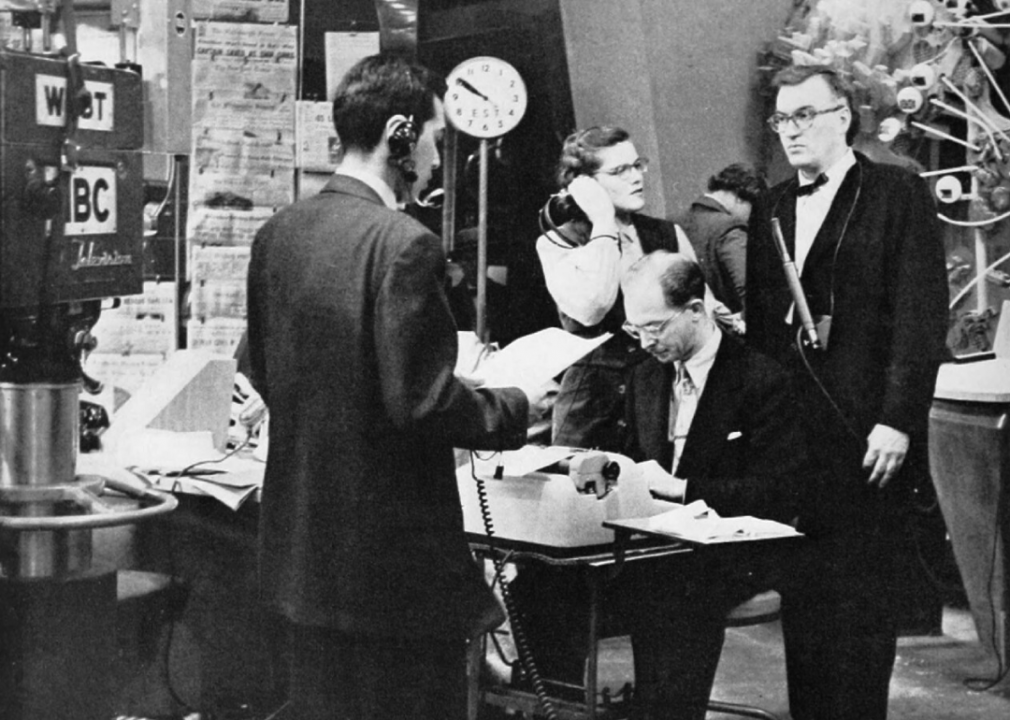
Unknown // Wikimedia Commons
One of the longest-running television programs in history also serves as the first early morning network news show. “The Today Show,” otherwise just known as “Today,” is still ongoing and remains one of the most-watched morning news shows. NBC’s “Today” led the way for competitors such as ABC’s “Good Morning America” and CBS’s “CBS This Morning” to rise.
1953: First pregnancy and birth storyline
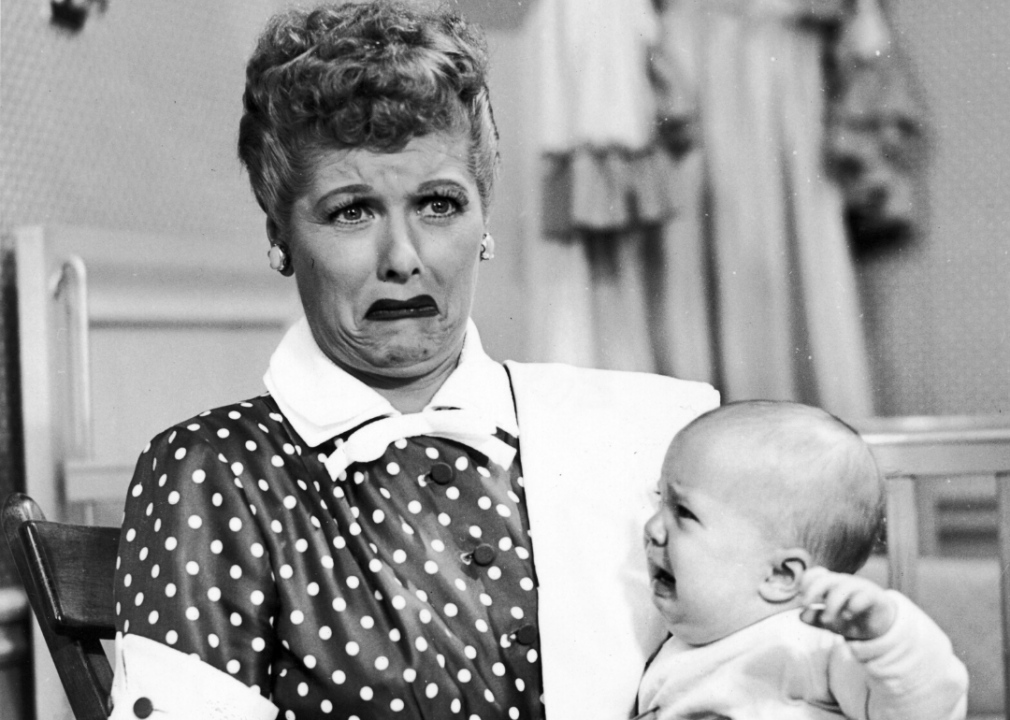
Archive Photos // Getty Images
When “I Love Lucy” star Lucille Ball became pregnant in real life, the trailblazing show that she headlined wrote it into the show’s storyline. Almost 72% of homes with television sets tuned in to watch the debut of baby “Little Ricky,” creating a major rating bonanza, even overtaking the inauguration of President Dwight Eisenhower and Queen Elizabeth II’s coronation in total viewership. With the word “pregnancy” still too much for television, Lucy was referred to as “expecting.”
1956: First reality TV show
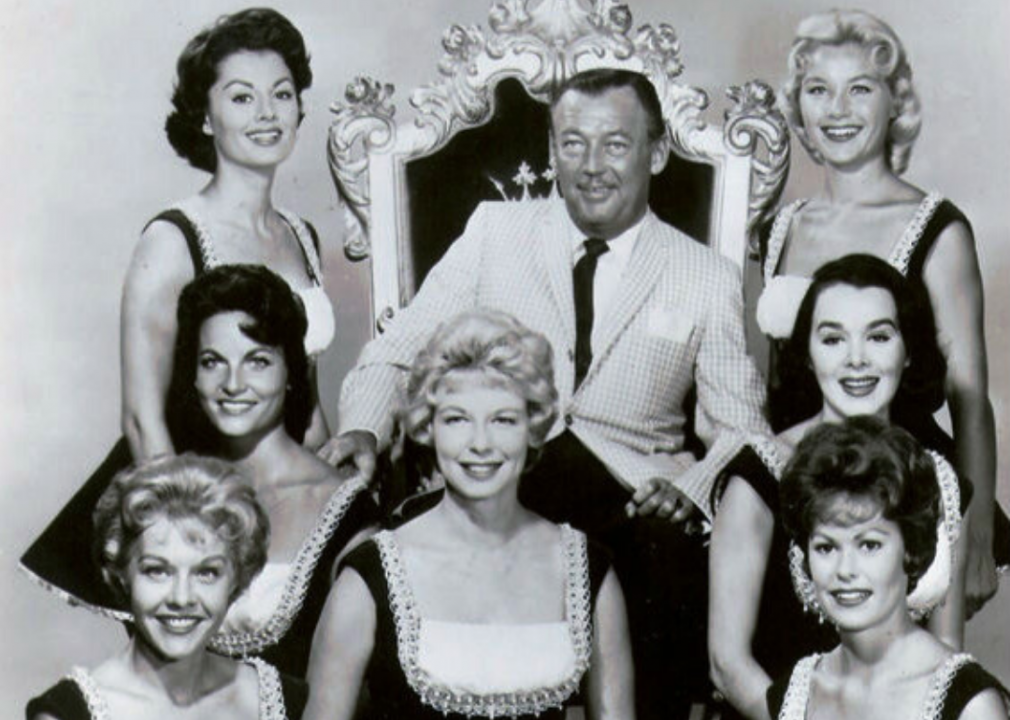
ABC Television // Wikimedia Commons
The public fascination with reality television and big prizes can likely be traced back to “Queen for a Day.” Originating as a radio program, “Queen for a Day” had the host (most famously Jack Bailey) ask individual women about their financial hardships and struggles, gaining sympathy with the audience. The winner, based on applause, would be seated on a throne and awarded gifts.
1956: First music video on TV
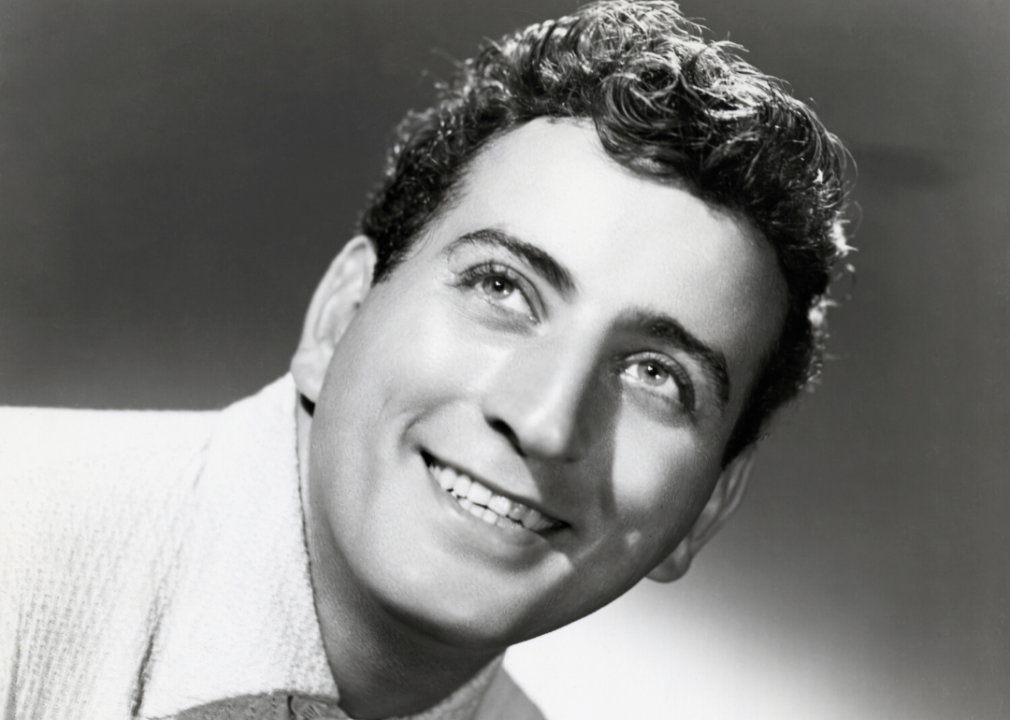
Bettmann // Getty Images
Led by MTV starting in the 1980s, music video television became a standard genre in broadcasting. This supposedly began in 1956, as Tony Bennett would claim in his autobiography that a video for the song “Stranger in Paradise” was the first music video aired on TV. Later in 1981, the first music video that MTV would air was “Video Killed the Radio Star.”
1956: First death of a major TV character
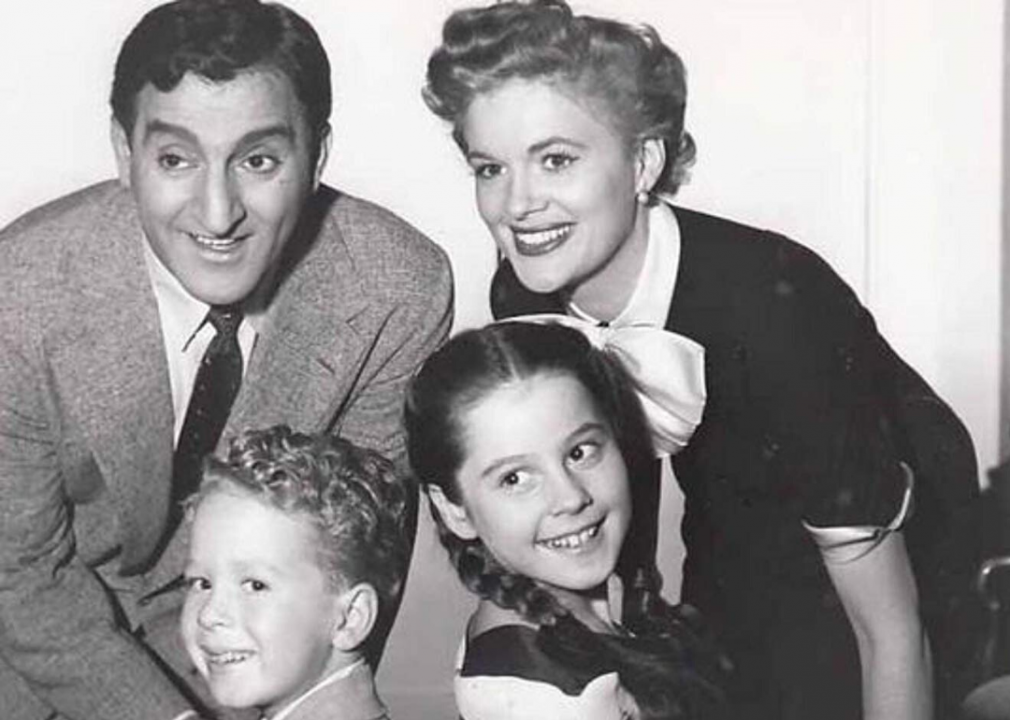
Marterto Productions
In today’s era of “peak television,” the possibility of favorite and major characters getting killed off is one of the main points of tension and discussion in television shows. Some would track the first major character death in a television show to “The Danny Thomas Show,” which was in the midst of being rebranded from “Make Room for Daddy.” Actress Jean Hagen left the show due to her dissatisfaction with her character’s direction, but as writing her off as having a divorce from the main character was thought to be taboo, the writers made the decision to kill her off instead.
1957: First toilet on screen
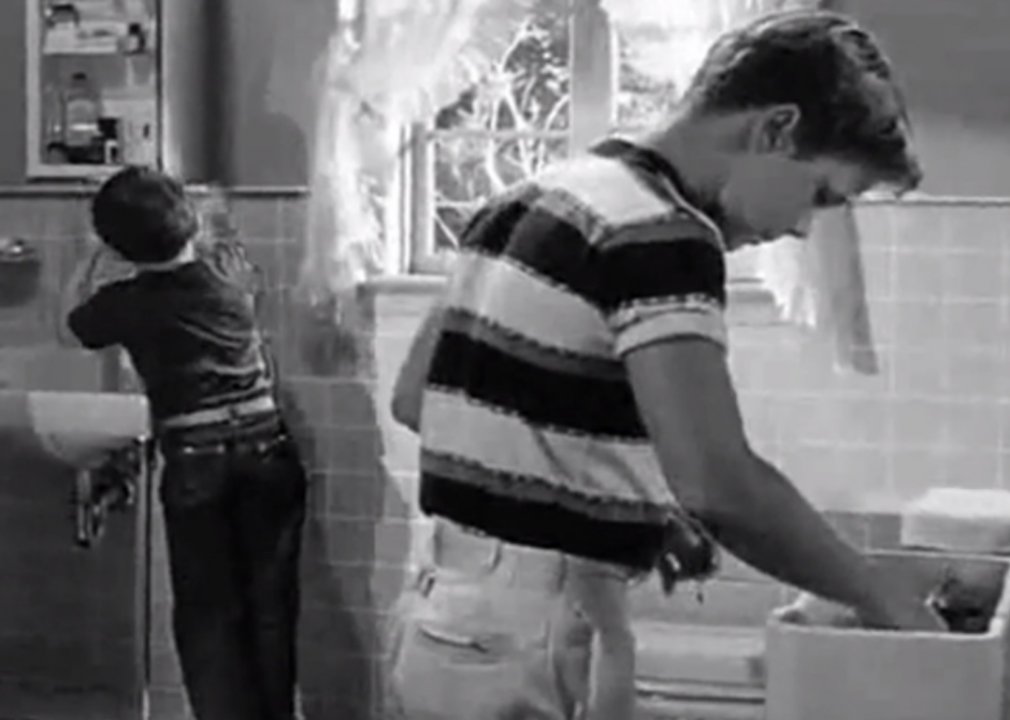
Gomalco Productions
What seems menial and ridiculous today was a source of discussion and scrutiny in the 1950s: The producers of “Leave it to Beaver” had an extended back and forth with network executives about a scene involving a toilet. Showing bathrooms on television was taboo, but in one episode of this show, the kid characters needed to hide a pet alligator in a toilet tank, making the toilet essential to the plot. Ultimately, the network agreed to the scene, so as long as characters never actually had to do their business in the restroom.
1960: First televised presidential debate
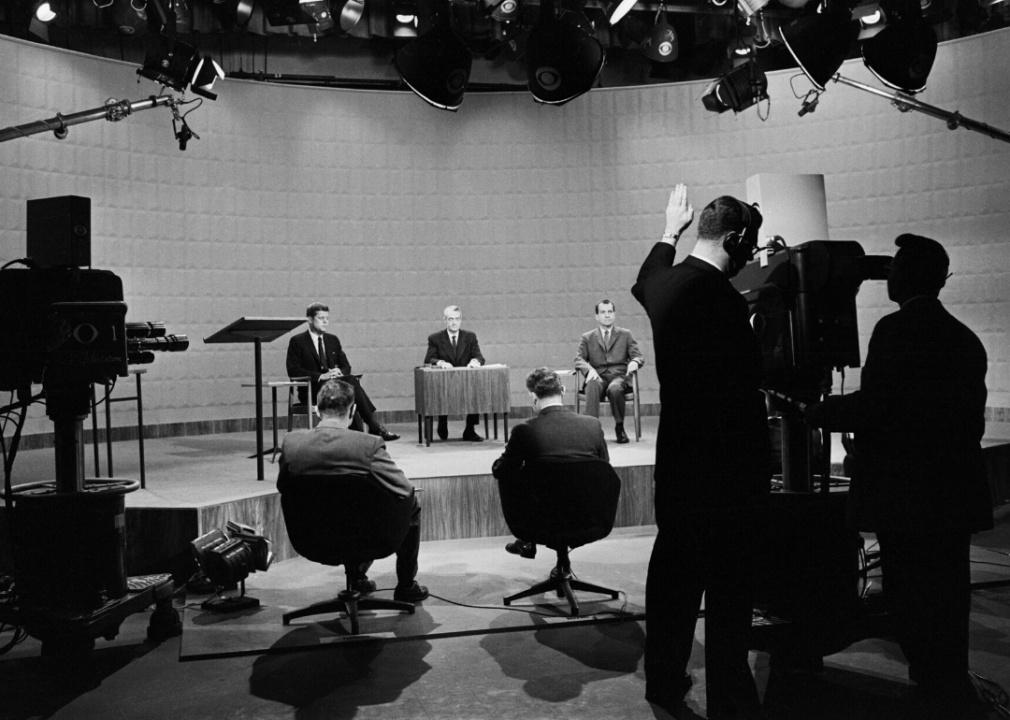
Bettmann // Getty Images
Televised presidential debates feel like a normal component of every United States election cycle, but it wasn’t standard until the 1960 election between Sen. John F. Kennedy and Vice President Richard Nixon. Television audiences who watched the Kennedy/Nixon debate recalled the confident and attractive Kennedy on the television screen while Nixon came across as nervous and sweaty. Conversely, listeners on the radio believed that Nixon won the debate.
1960: First animated show for primetime
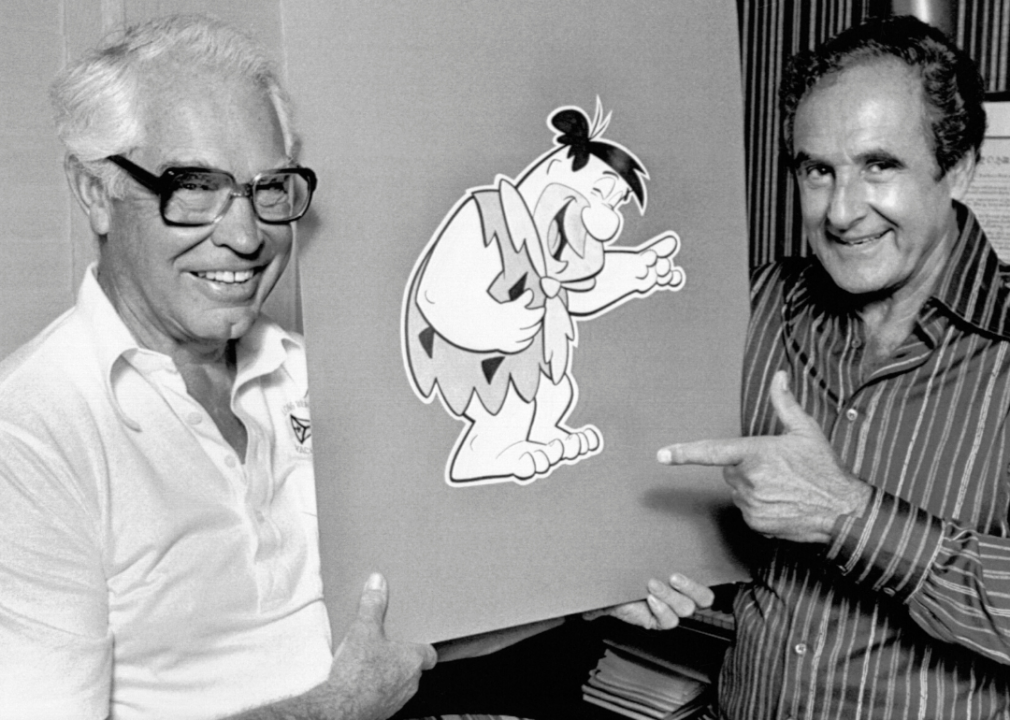
Bettmann // Getty Images
Televised animation was considered to be a kid-focused genre, but “The Flintstones” challenged preconceptions when it became the first animated show to hold a primetime slot. Produced by Hanna-Barbera, the show had a standard sitcom structure, while featuring the high-concept juxtaposition of modern everyday problems with a Stone Age setting. The success of “The Flintstones” was succeeded by “The Simpsons” decades later.
1962: First televised tour of the White House
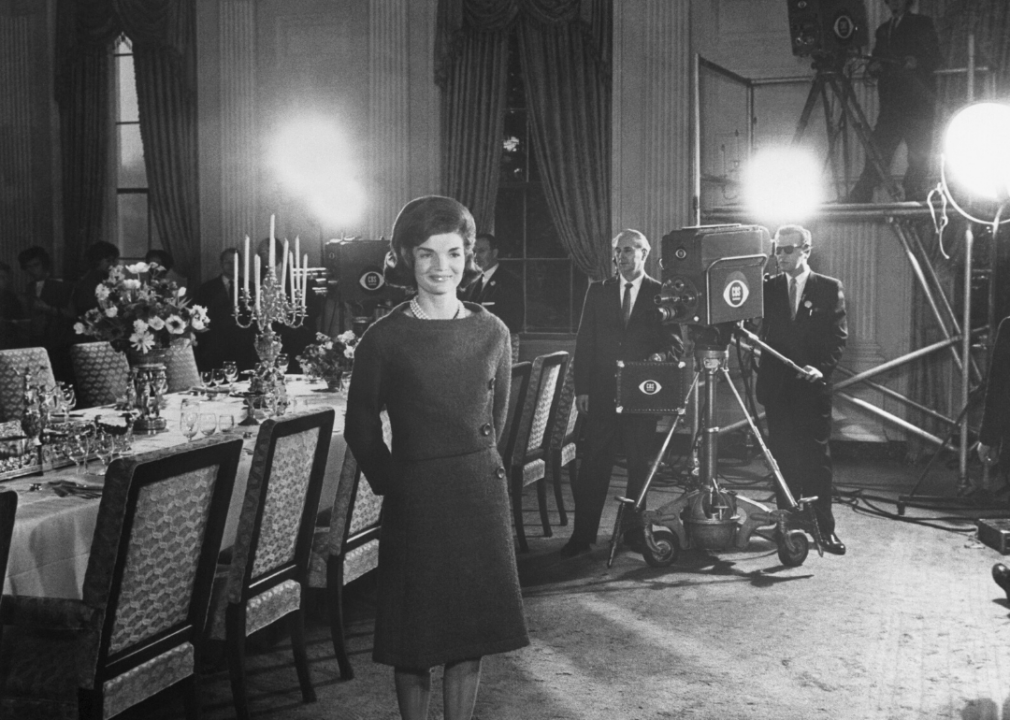
Bettmann // Getty Images
The First Lady of the United States is an important public figurehead to any administration, but television provided a new opportunity in its heyday. Jackie Kennedy began the unofficial tradition of the First Lady giving a televised tour of the White House, helping to humanize Jackie and John Kennedy in the middle of their term.
1965: First series to star a Black actor
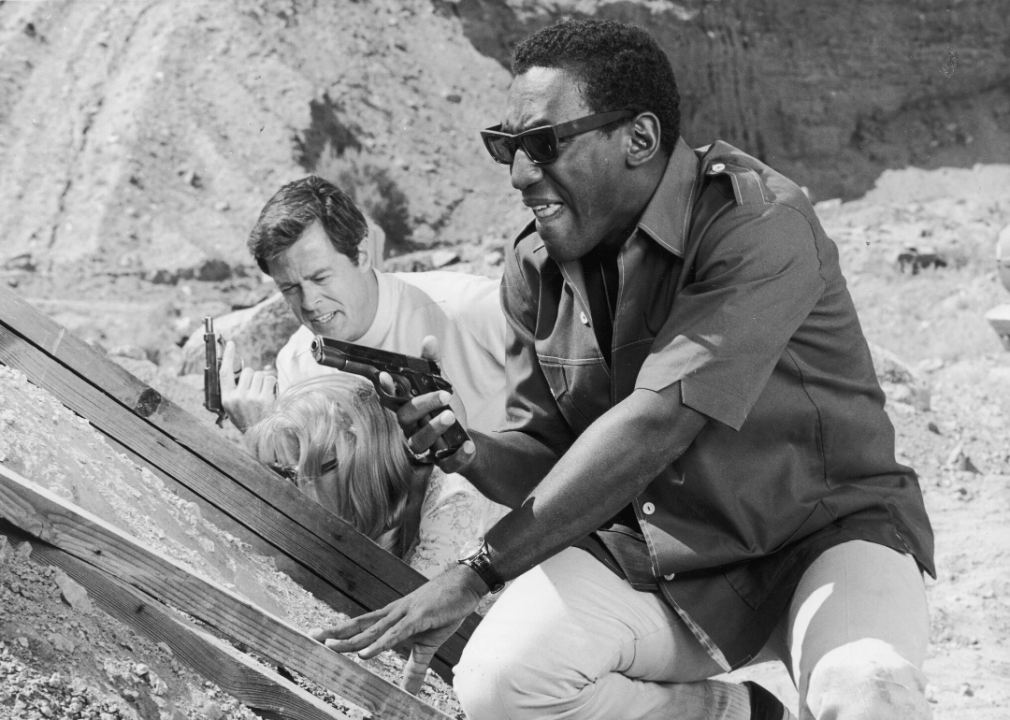
Paramount Pictures // Getty Images
Secret agent show “I Spy” broke new ground by being the first American television drama to feature a Black actor in a leading role. Bill Cosby portrayed Alexander Scott opposite white actor Robert Culp as Kelly Robinson. Cosby’s race was rarely addressed in the show itself, making the casting a “non-statement statement.” The show was ultimately successful because of the chemistry and banter between Culp and Cosby.
1966: First British TV show aired on U.S. primetime
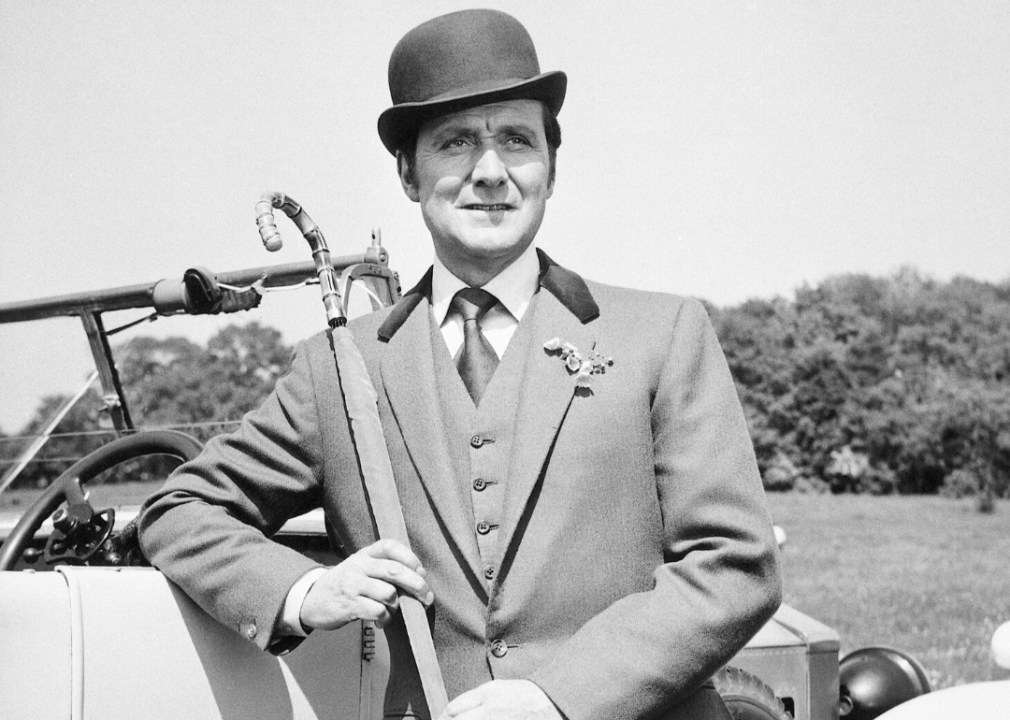
Bettmann // Getty Images
British imports on American television are not hard to come by in the present day, but the espionage show “The Avengers” was the first British show to air in a U.S. primetime slot. The show aired on ITV in the U.K., but the ABC network paid a considerable sum of $2 million in 1966 to air the show in the States. Nowadays, shows like “Sherlock” and “Downton Abbey” have found equal success in America.
1967: First televised Super Bowl
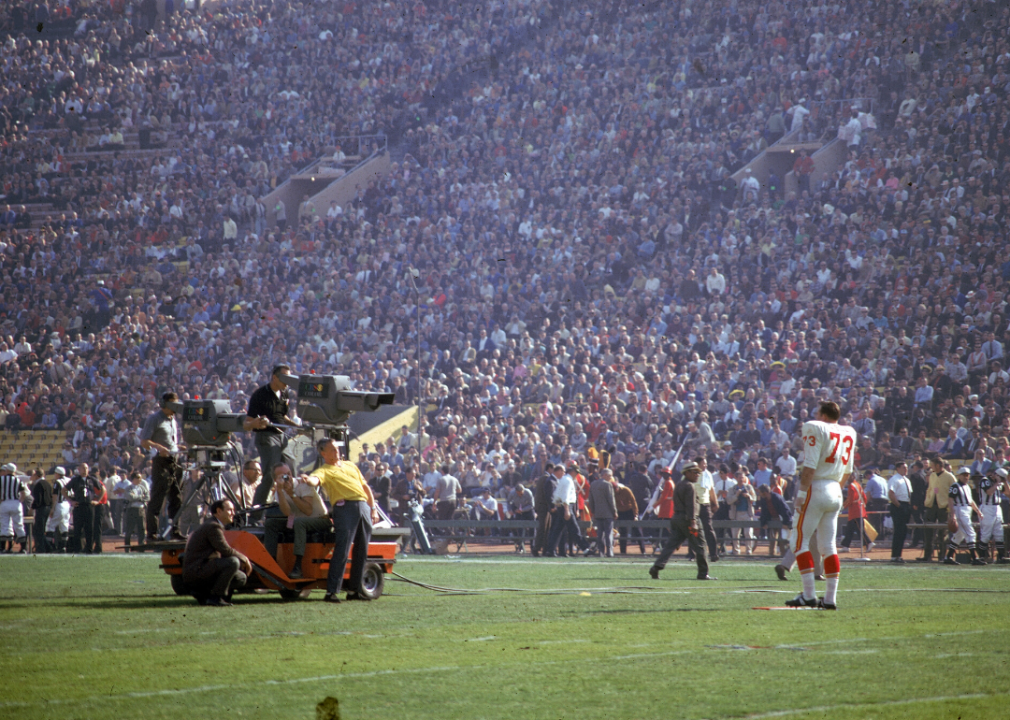
Robert Riger // Getty Images
The first Super Bowl wasn’t known as the “Super Bowl” just yet, instead officially being known as the AFL-NFL World Championship Game. American football fans could finally watch the animosity between the rival AFL and NFL leagues play out on live television, with the Kansas City Chiefs representing the AFL and the Green Bay Packers from the NFL. The sportscast was aired simultaneously on CBS, which had NFL broadcast rights, and NBC, which had AFL broadcast rights; this would be the only Super Bowl to air on two networks at once.
1968: First interracial kiss
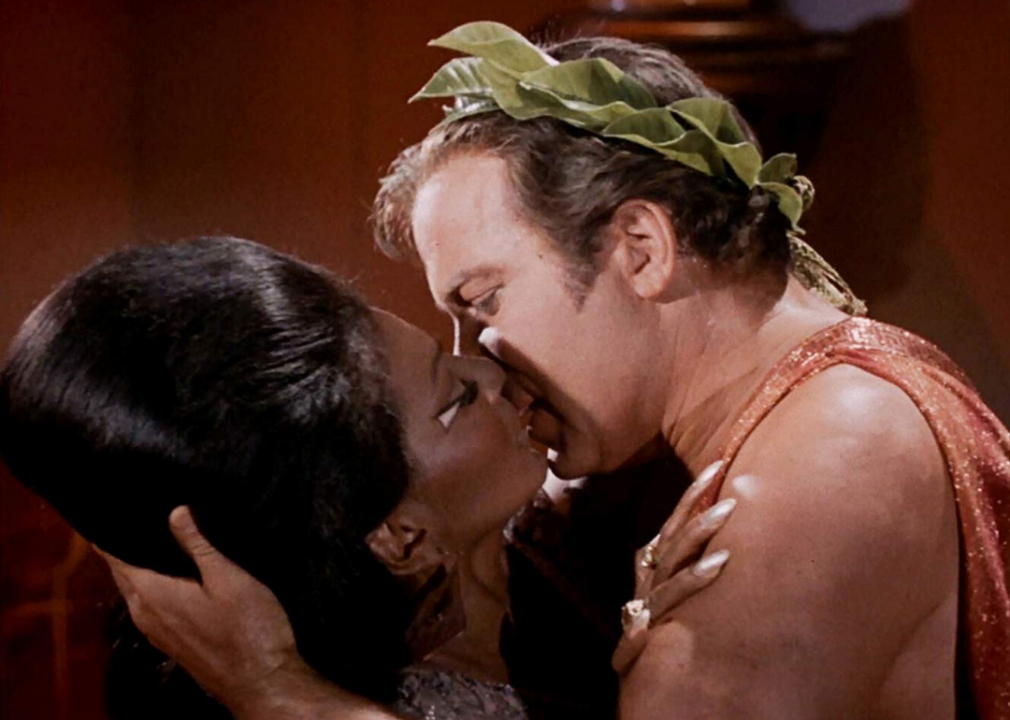
Paramount Television
Gene Roddenberry’s original “Star Trek” show outlined a vision for a utopian future far past outdated notions like racism. The episode “Plato’s Stepchildren” featured Captain Kirk (William Shatner), a white man, kissing Lt. Uhura (Nichelle Nichols), a Black woman, which at the time was considered to be daring for television; however, other shows like “I Spy,” “The Wild Wild West,” and even “Star Trek” itself were pointed out to have kisses between white and Asian characters. Nevertheless, the Kirk/Uhura kiss has left a legacy and is cited as an important moment in television.
1971: First TV show warning
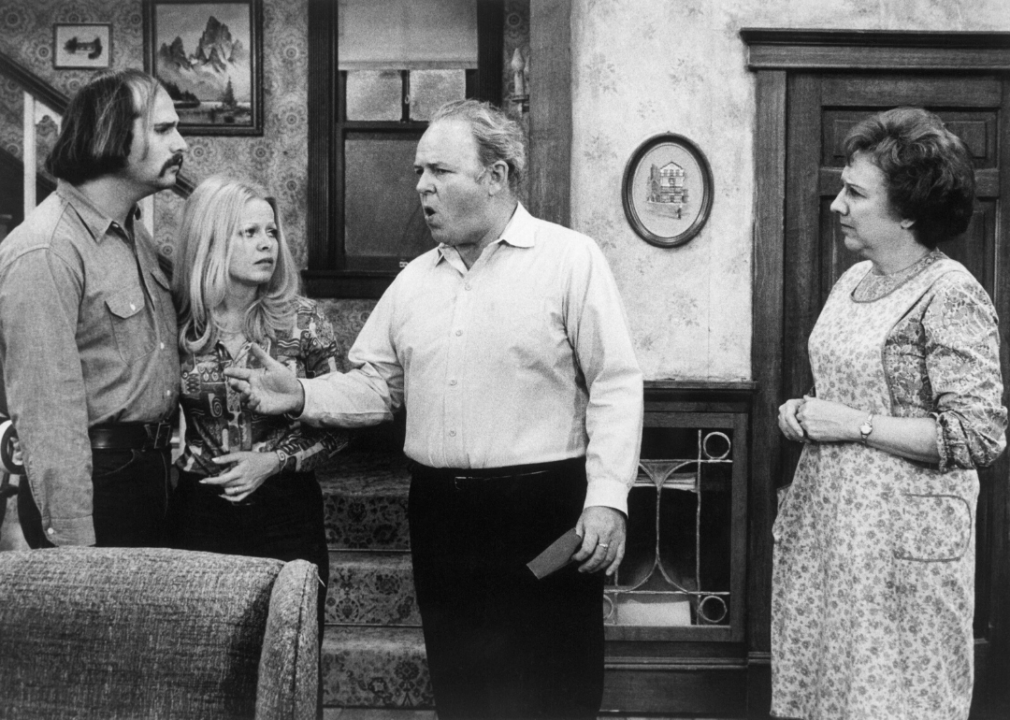
Bettmann // Getty Images
Upon the airing of its pilot, “All in the Family” included the following warning: “The program you are about to see is “All in the Family. It seeks to throw a humorous spotlight on our frailties, prejudices, and concerns. By making them a source of laughter, we hope to show—in a mature fashion—just how absurd they are.” Similarly (if more seriously), the 1975 Normal Lear show “Hot l Baltimore,” with controversial topics and characters including prostitutes, illegal immigrants, and gay couples, had a warning label attached to every episode of the show.
1971: First show videotaped for a live studio audience
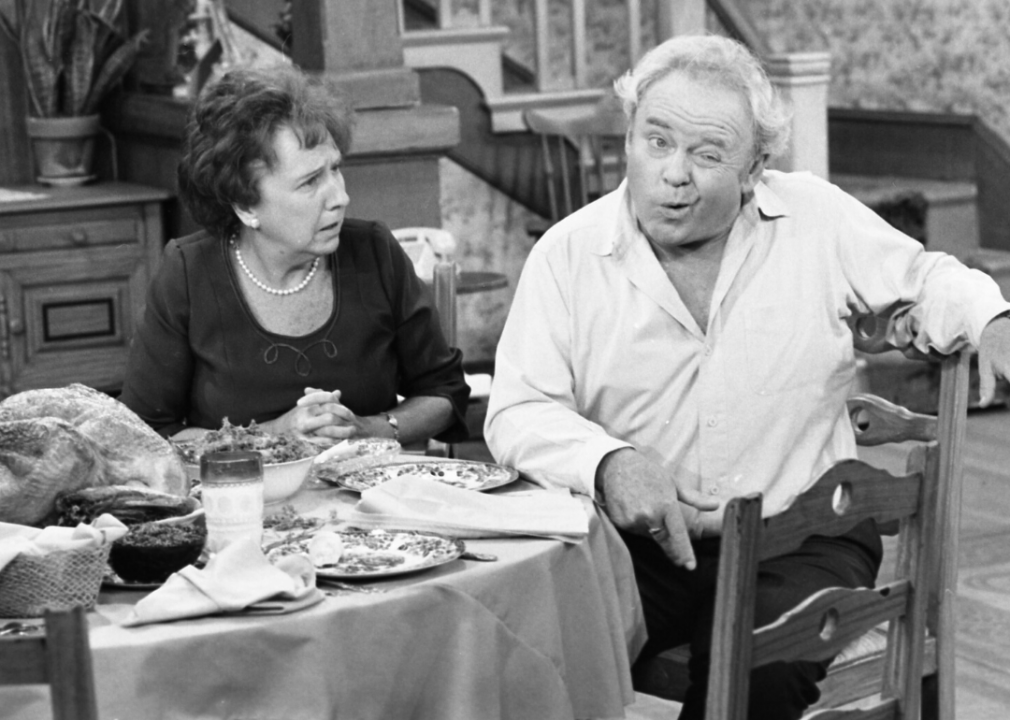
Donaldson Collection // Getty Images
Videotape eventually became an essential piece of technology in television production thanks to its cost and versatility. “All in the Family” became the first television show that was videotaped in front of a live studio audience, even making a point to announce this fact at the beginning of every episode, a standard that would repeat in many sitcoms afterward.
1964: First abortion storyline
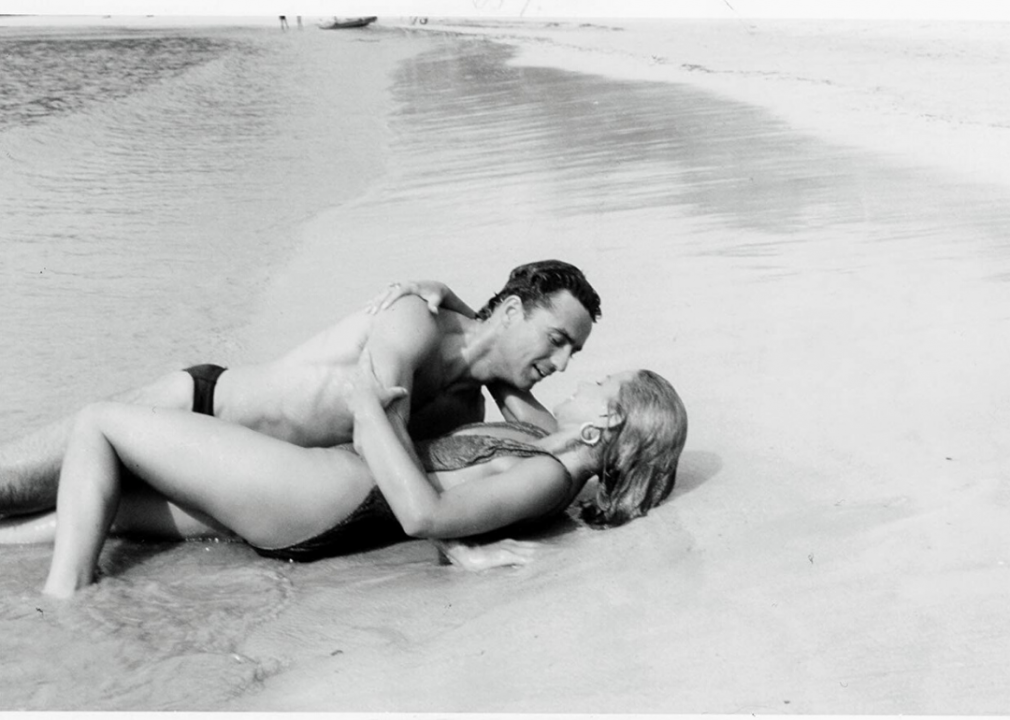
National Broadcasting Company
Abortion is still a controversial topic, so it may be surprising to some that a couple of television shows were so ahead in discussing the issue. “Another World” in 1964 had two characters discussing abortion. But the most famous case, just two months before Roe v. Wade made abortion legal, was “Maude,” in which the title character, played by Bea Arthur, found herself pregnant at age 47, with her and her husband deciding to terminate the pregnancy. Some stations ended up dropping the show entirely as a result.
1967: First utterance of “hell”
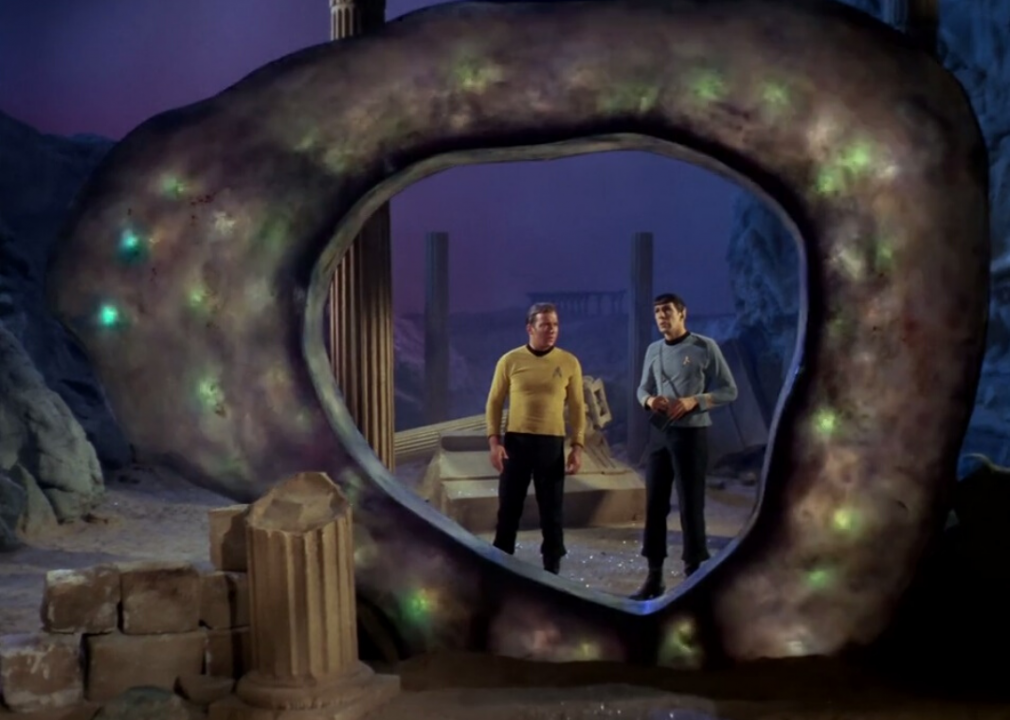
Desilu Productions
Profanity was not taken lightly in the early days of television. This also applied for the minor and relatively tame word “hell.” A season one episode of “Star Trek,” called “The City at the Edge of Forever,” ended with William Shatner’s Captain Kirk uttering the line "Let's get the hell out of here," which caused discord amongst the crew. Show creator Gene Roddenberry and Shatner had to fight for the line to remain.
1971: First on-screen belly button
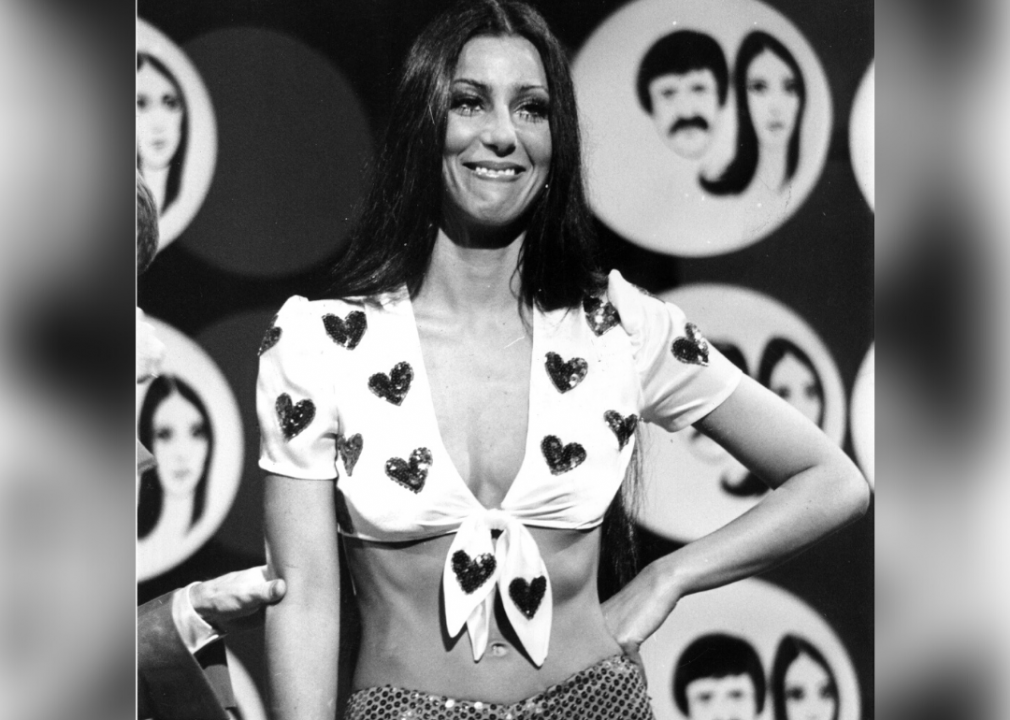
Michael Ochs Archives // Getty Images
It may seem tame by today’s decency standards on television, but many shows went out of their way to prevent female actresses from exposing their midriff on screen. Network executives forbade actress Barbara Eden from exposing her belly button on “I Dream of Jeannie,” and several actresses on “Gilligan's Island” were forced to cover up. Popstar Cher did not abide by these standards, however, showing off her belly on “The Sonny & Cher Comedy Hour” in the 1970s.
1972: First recurring gay character
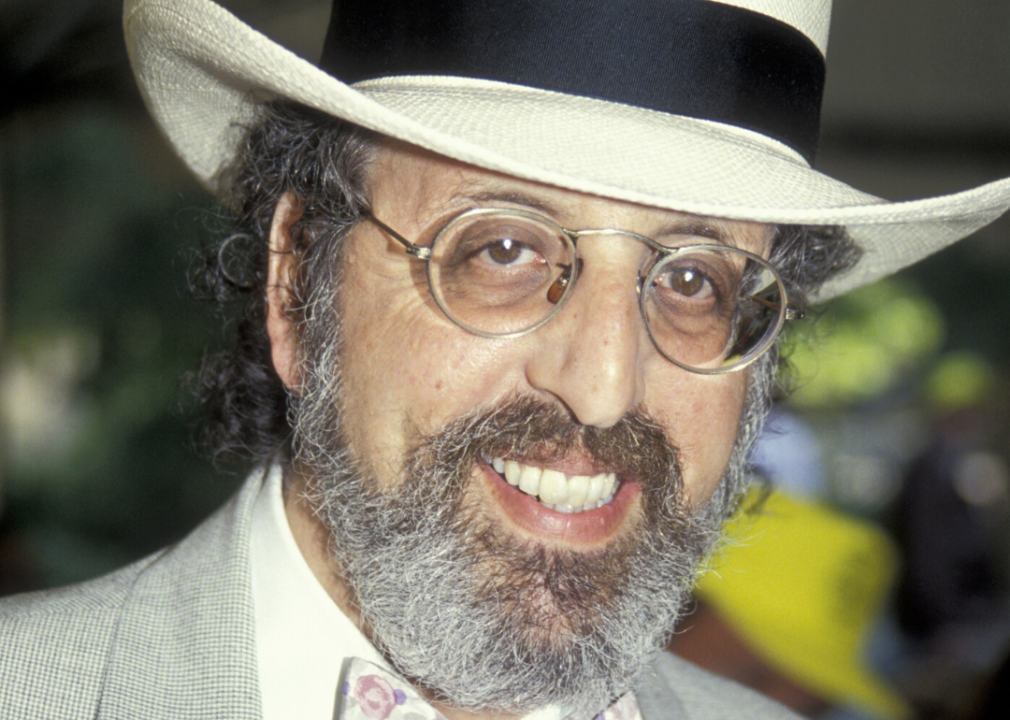
Ron Galella Collection // Getty Images
Acclaimed character actor Vincent Schiavelli introduced television viewers to the first recurring gay character in a show called “The Corner Bar.” The character of Peter Panama might be considered to be over-the-top by today’s standards, but gay characters would continue to show up regularly as main characters in numerous mainstream television shows to come afterward.
1973: First on-screen male nudity
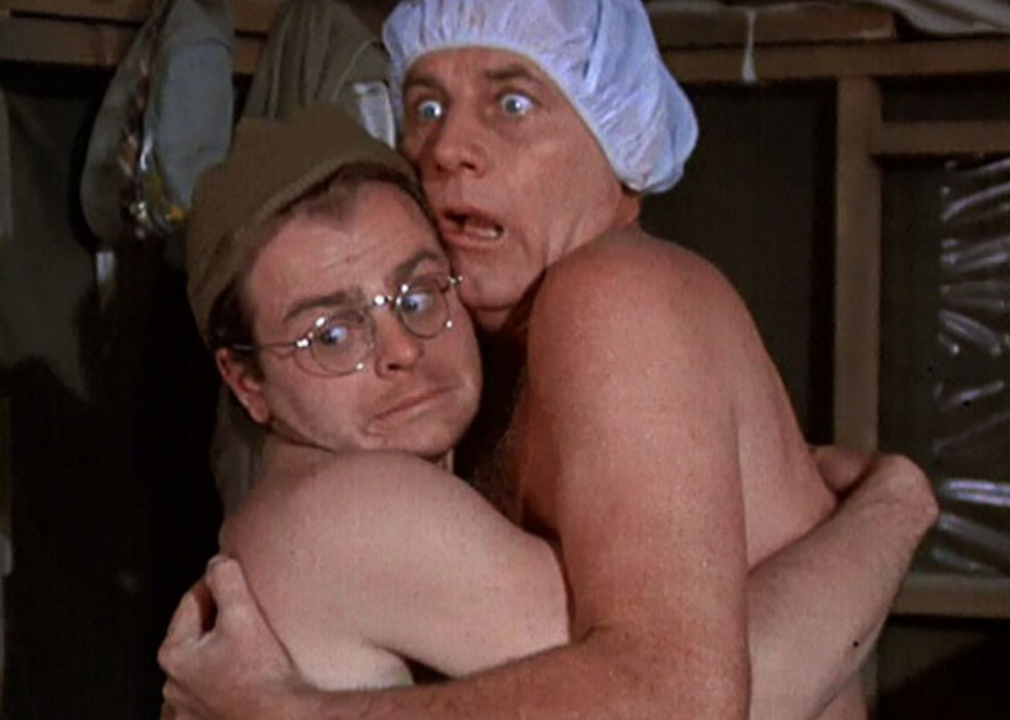
20th Century Fox Television
The most famous case of a male character showing it all on screen is the R-rated “NYPD Blue,” which constantly pushed the envelope when it came to mature content on television. However, the first instance of male nudity was actually in the crowd-pleasing “M*A*S*H” in an episode called “The Sniper” when Radar (Gary Burghoff) briefly loses his towel while fleeing from a sniper’s view.
1973: First on-screen female nudity
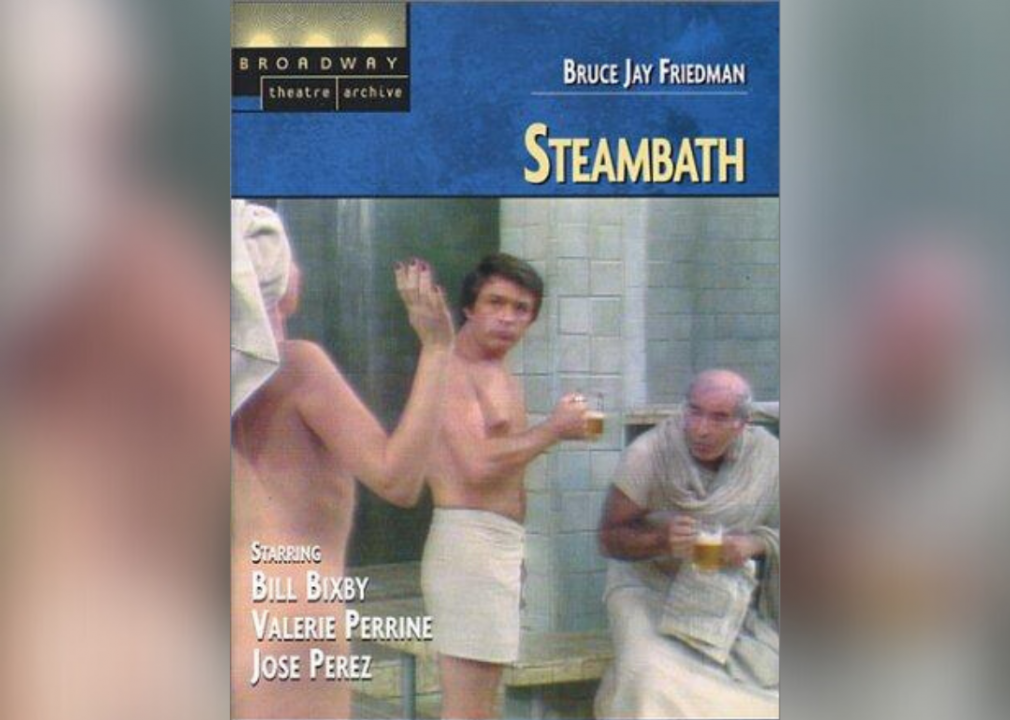
Hollywood Television Theatre
Coincidentally, the first instance of intentional female nudity on television came the same year as the first scripted scene of male nudity. In a PBS production of the play “Steambath,” actress and former showgirl Valerie Perrine would flash her breasts to the camera. Even before, instances of unintentional female nudity showed up on television due to what are known today as “wardrobe malfunctions.” Most notably, this happened to Jayne Mansfield at the 1954 Academy Awards.
1975: First TV theme to reach #1 on Billboard
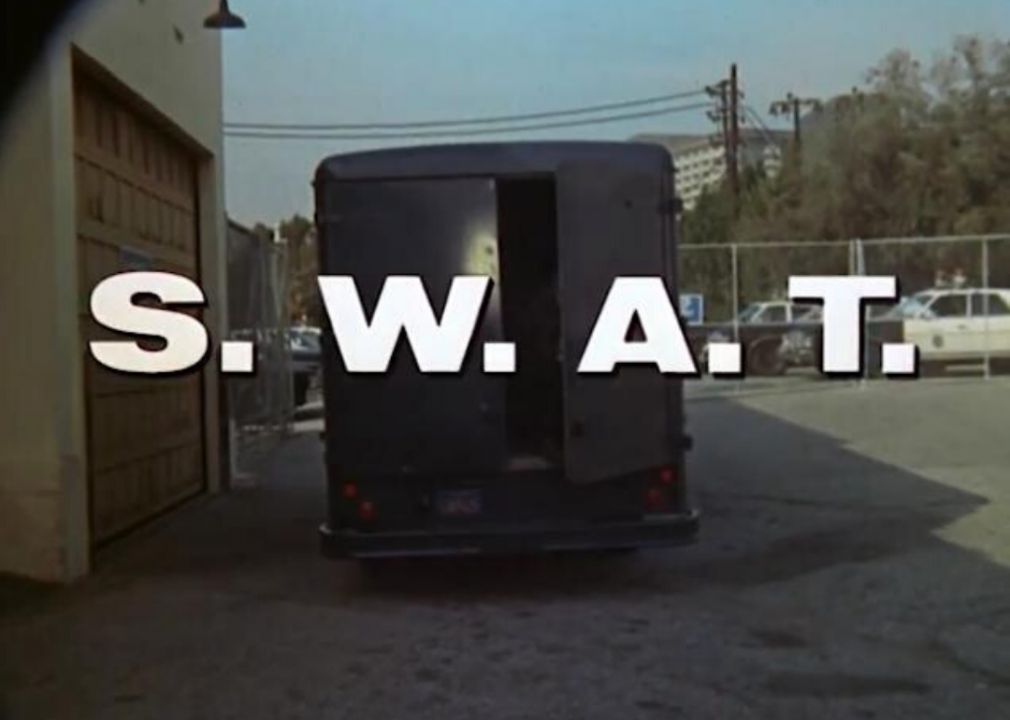
Spelling-Goldberg Productions
The staying power of a theme song can act as a good indicator of a television show’s impact, with some purchasable theme songs even hitting the Billboard charts. “S.W.A.T.” was the first such theme song that hit #1 on the pop charts, soon being followed by “Welcome Back, Kotter” in 1976, “Miami Vice” in 1985, and “The Heights” in 1992.
1975: First condom ad

ACA9595 // Shutterstock
With casual sex and contraception serving as highly sensitive topics in the early days of television, condoms were not common as props or plot points on television. A San Jose television station in 1975 aired an ad promoting safe sex and “responsible parenthood” from Trojan. Network television’s first condom advert came in 1991 on the Fox network through a 15-second ad during the teen show “Howard’s Head.”
1975: First gay couple on television
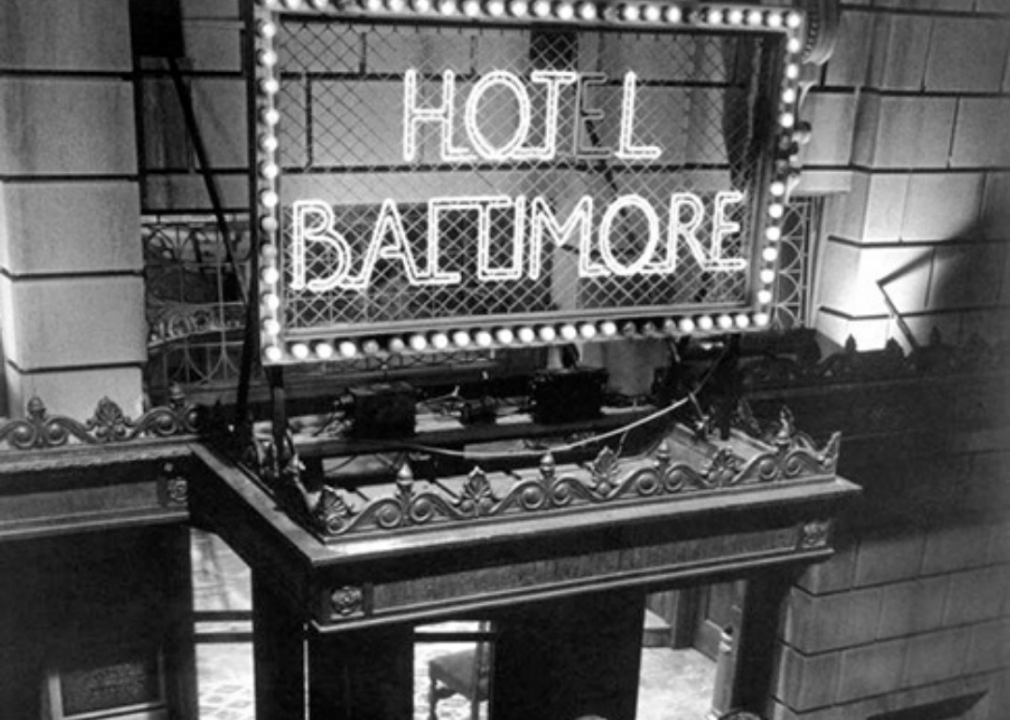
TAT Communications Company
Norman Lear was ahead of many other television writers and creators with “Hot l Baltimore,” despite its short and controversial run. With a content warning for mature themes at the beginning of every episode, “Hot l Baltimore” (spelled this way to represent a burned-out “e” on the hotel sign) featured a gay couple named George and Gordon.
1975: First satellite broadcast
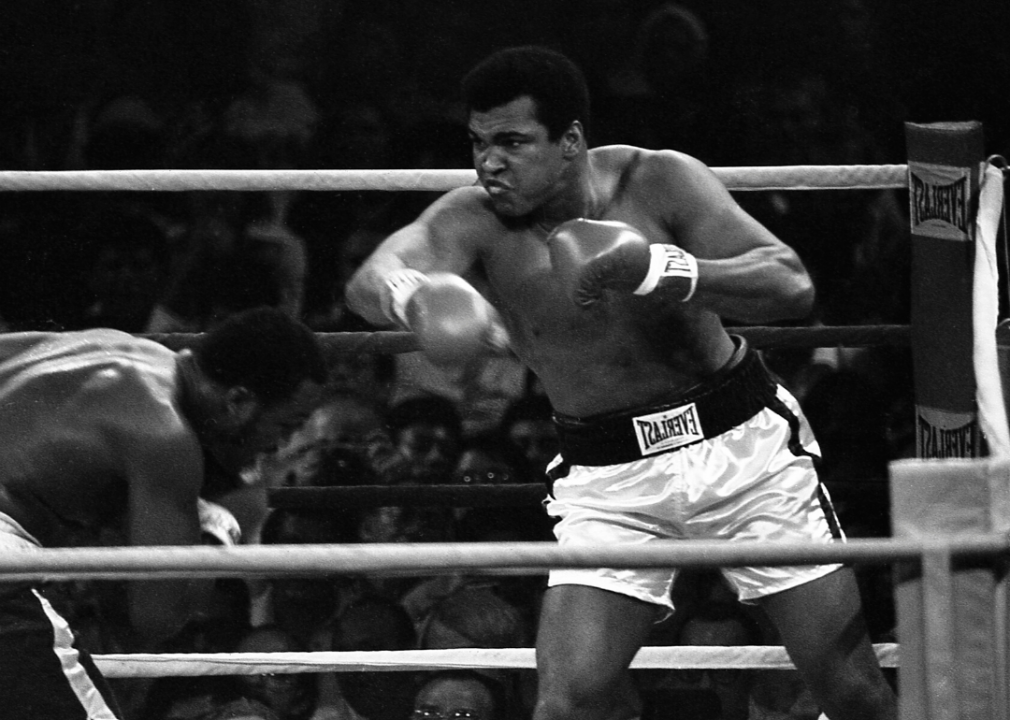
nik wheeler/Corbis // Getty Images
HBO would begin its streak of making history by broadcasting a famous boxing match between Muhammad Ali and Joe Frazier via satellite. The “Thrilla in Manila” was seen by a record-setting 1 billion viewers, with 500,000 viewers tuning in through pay-per-view buys on HBO home cable television. This prize fight in Quezon City, Philippines, helped to launch cable television to mass popularity.
1976: First F-bomb
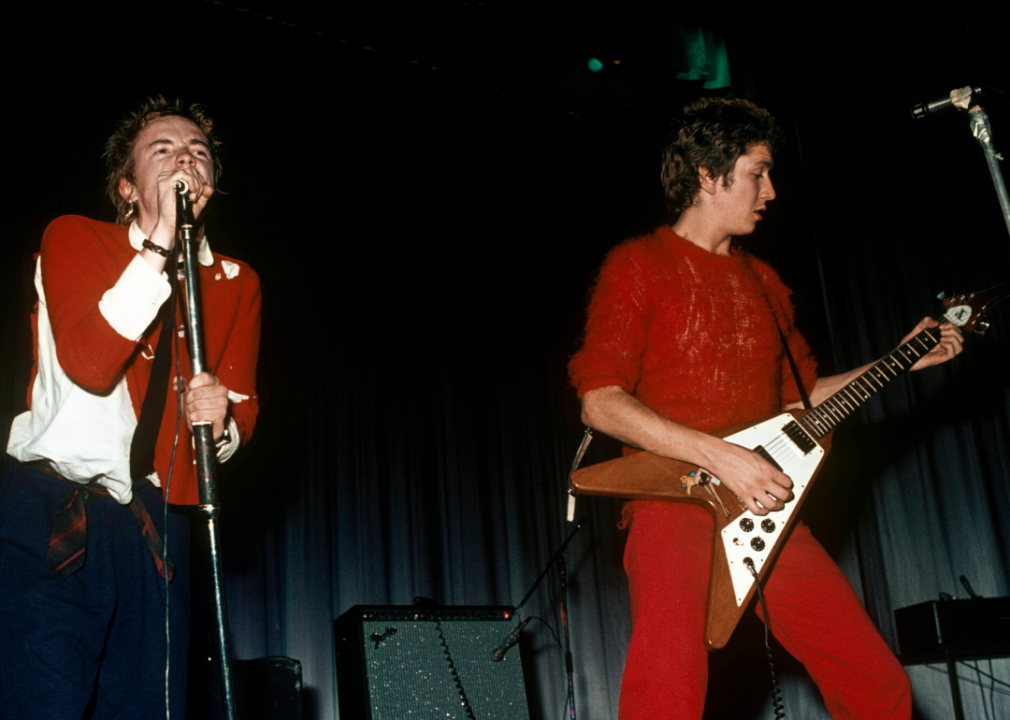
Chris Morphet/Redferns // Getty Images
The first use of the F-bomb could be tracked to ITV’s “Today” on British television, where punk musicians The Sex Pistols constantly dropped swear words that included the F-word; the band was banned from live television as a result. On the other side of the Atlantic, “Saturday Night Live” cast member Charles Rocket would end an episode by saying the word live, resulting in the firing of himself and many others in the cast and crew.
1979: First rap/hip-hop song on TV
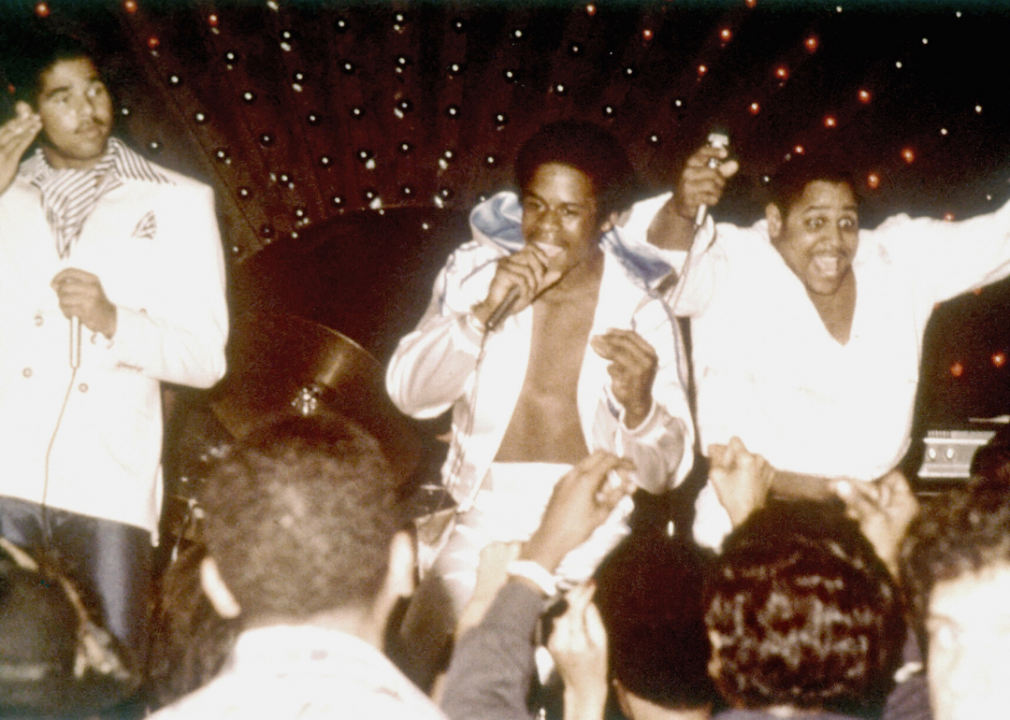
Michael Ochs Archive // Getty Images
The rap and hip-hop genres of music were under scrutiny from some of the general public due to their content, but mainstream acceptance of this music would eventually come thanks to some high-profile television performances. In 1979, The Sugar Hill Gang became the first hip-hop group to perform on “American Bandstand,” which was hosted by Dick Clark; the group performed “Rapper’s Delight.”
1987: First lingerie ad
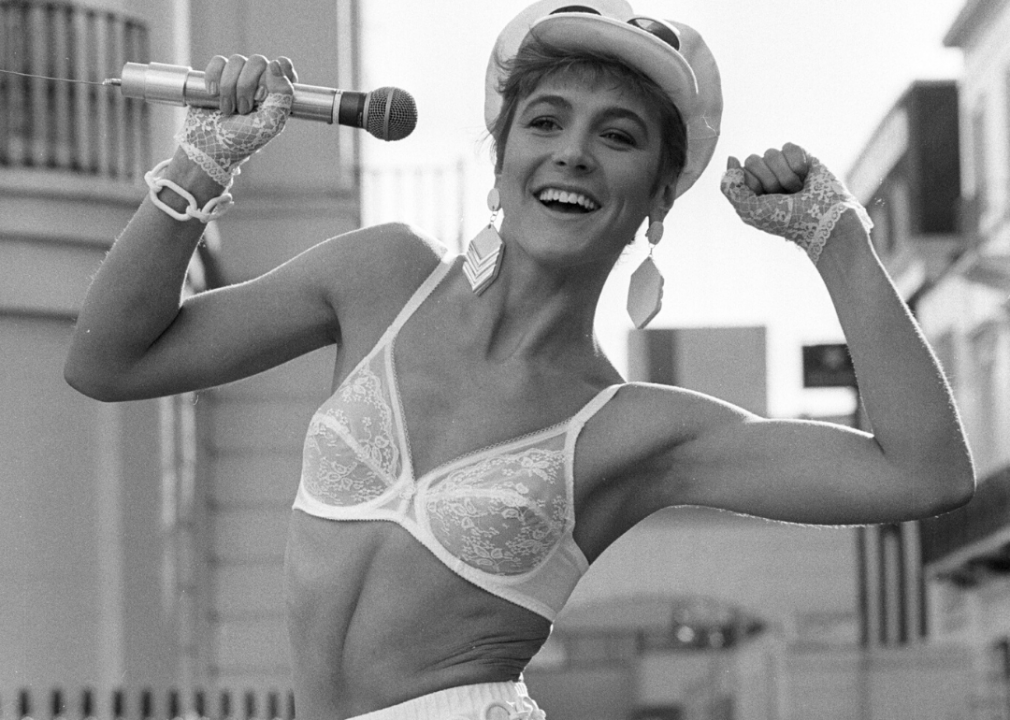
PA Images // Getty Images
Because of social stigmas surrounding sex, lingerie advertisements on television used to use mannequins to model the merchandise. This changed in 1987 when Playtex took advantage of loosened standards and aired television ads that featured real models wearing lingerie.
1991: First female same-sex kiss

20th Century Fox Television
The first same-sex kiss between women on television occurred much earlier than the equivalent scene for males, with women locking lips on “L.A. Law.” The kiss was between series regulars Abby Perkins (Michelle Greene) and C.J. Lamb (Amanda Donohoe). GLAAD praised the show for the landmark scene.
1991: First same-sex marriage
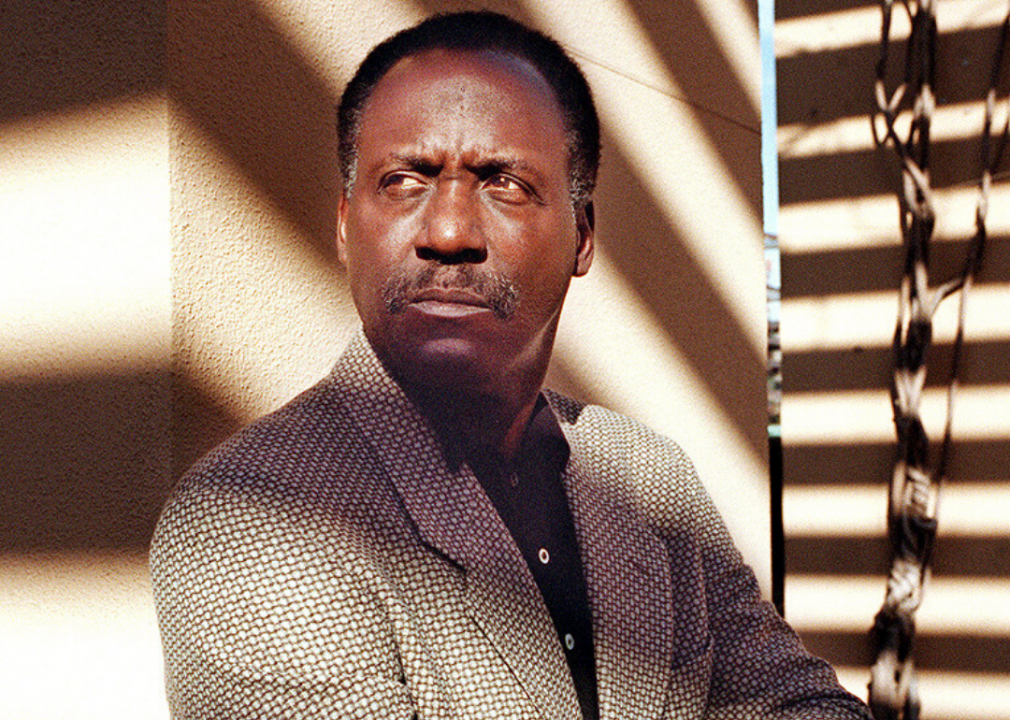
Al Seib/Los Angeles Times // Getty Images
Even before same-sex marriage was declared legal in all of the United States, the sitcom “Roc” went ahead and featured characters who were in a same-sex marriage. The show featured “Shaft” actor Richard Roundtree in a recurring guest role as the main character’s uncle, who is revealed to have a male partner. Later on, other television shows including “Northern Exposure,” “Roseanne,” and “Friends” would have same-sex married couples as characters, well before gay marriage was fully legalized.
1993: First openly gay teenager
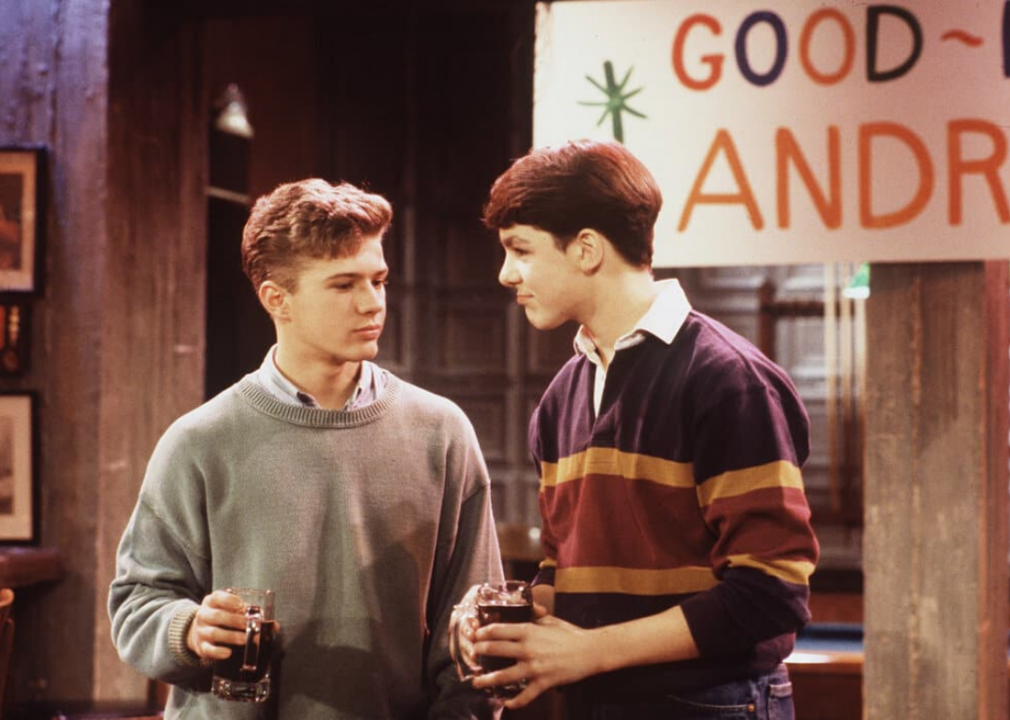
American Broadcasting Company
Daytime television’s first openly gay teenaged character was Billy Douglas, played by Ryan Phillippe in “One Life to Live.” This character would be followed in primetime television in 1994 through Rickie Vasquez, who was portrayed by Wilson Cruz in “My So-Called Life.” These young, queer characters ended up as role models for young men, especially for youths who were struggling with their sexuality at an early age.
1997: First lesbian protagonist
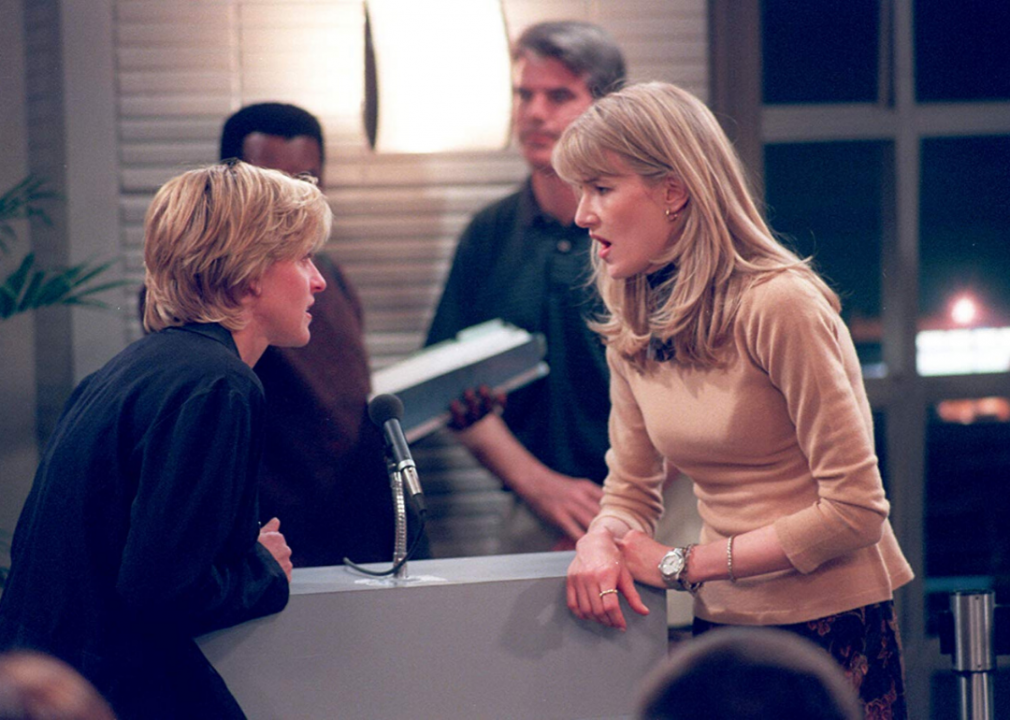
The Black/Marlens Company
p>While Ellen DeGeneres’ show “Ellen” has been on the air since 1994, it would take until 1997 for Ellen—both the real-life figure and the character based on her—to come out as a lesbian. The coming out occurred in an episode called “The Puppy Episode,” misleadingly named in reference to television executives’ desire for Ellen’s character to date, or at the very least, get a puppy. Before airing, the episode received scrutiny from advertisers and religious groups, but the episode was an enormous rating success. The show was canceled, but DeGeneres got the last laugh: Her award-winning talk-variety show "The Ellen DeGeneres Show" has aired since 2003 and is one of the most popular series on television.
1999: First scripted S-Word

20th Century Fox Television
The hype surrounding rated-R shows like “NYPD Blue” using curse words was lampooned by “South Park” in 2001, but the S-word was first uttered on network television in an episode of hospital drama “Chicago Hope.” In one instance, a character played by Mark Harmon says “S**t happens.” The scene caused little controversy.
2001: First male same-sex kiss
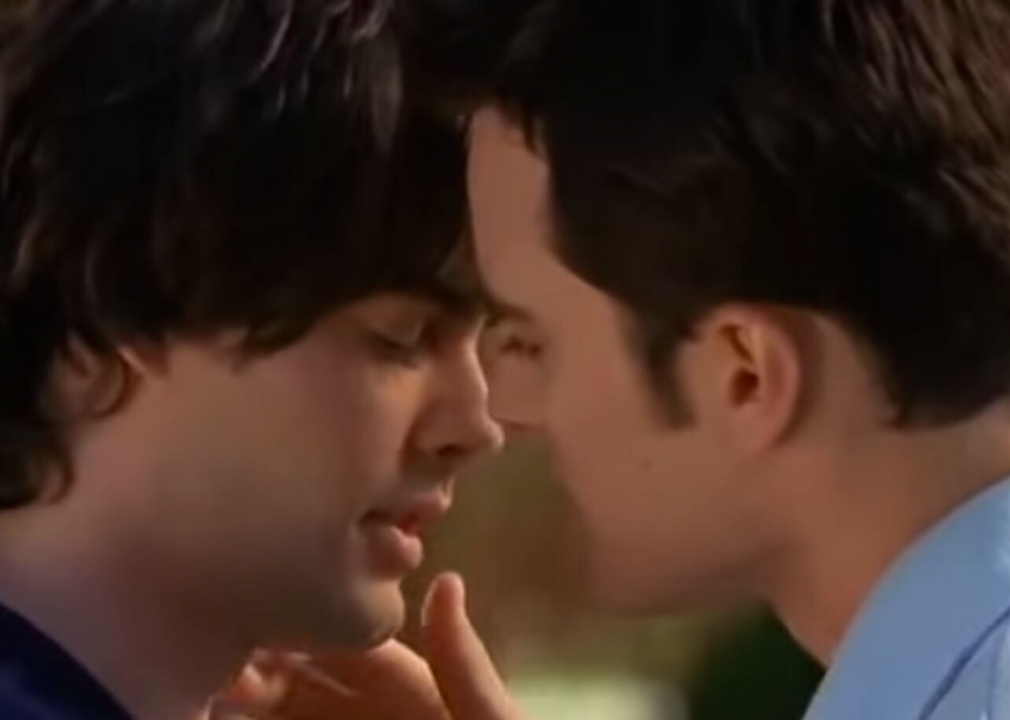
Outerbanks Entertainment
A plotline in teen drama “Dawson’s Creek” had the character of Jack McPhee (Kerr Smith), having broken up with his girlfriend Joey (Katie Holmes) in the previous season, find true love with the character of Ethan (Adam Kaufman). Before the beginning of the millennium, the first gay kiss was supposed to occur on the show “Melrose Place” in 1994, until a key advertiser threatened to pull advertising if the scene was shown.
2007: First trans woman with recurring role
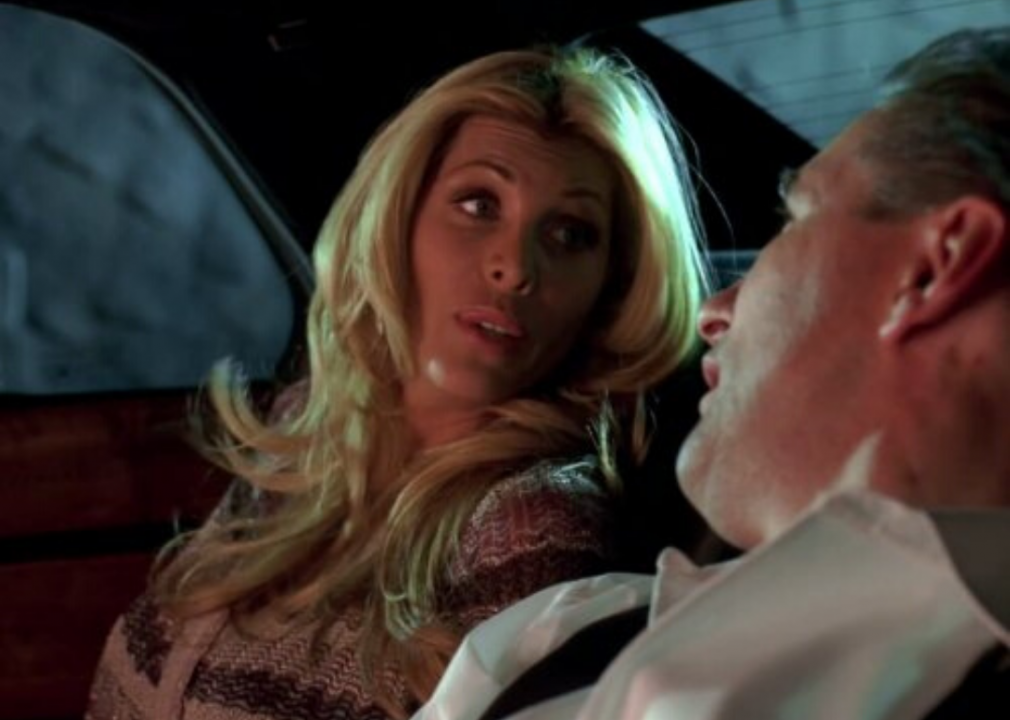
Berlanti Television
Only in recent decades have transgender performers been given large roles in television. One of the first transgender actresses to receive a role on a primetime show was Candis Cayne in “Dirty Sexy Money.” Later on, transgender actress Laverne Cox received larger attention for her role in Netflix’s “Orange Is the New Black.”
2017: First non-binary television character
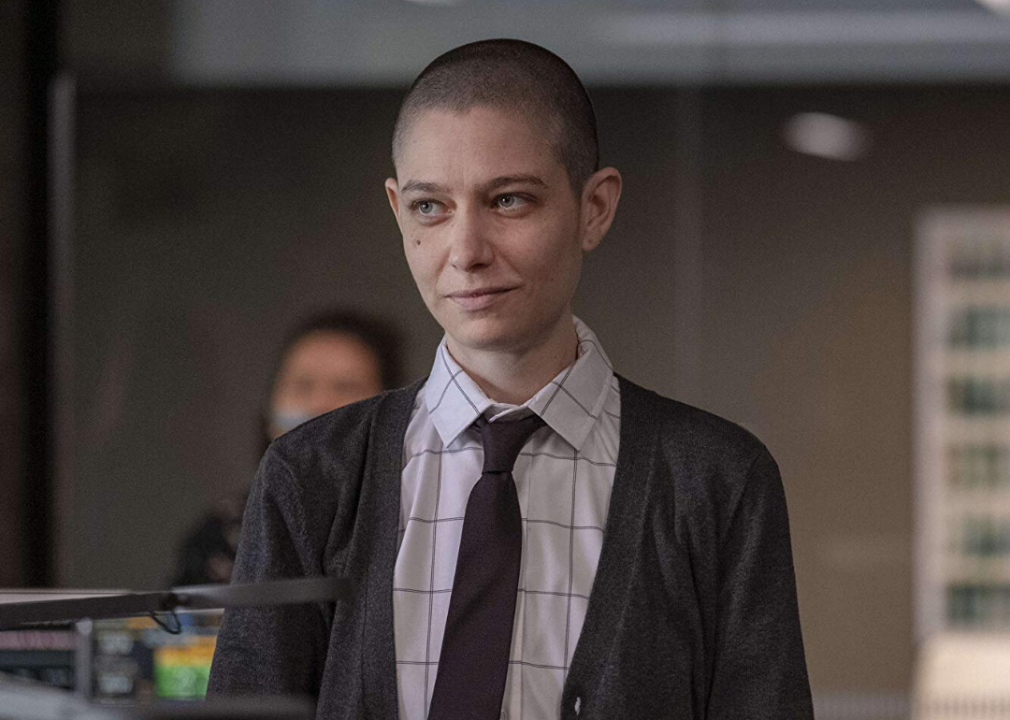
Showtime Entertainment</h5
Growing acceptance for the singular “they/them/theirs” pronoun is represented in the Showtime program “Billions.” Non-binary actor Asia Kate Dillon portrays Taylor Mason, a non-binary character who starts off as an intern but proves their brilliance to the rest of the characters. Asia Kate Dillon’s presence in the show has helped to spark more conversations about modern attitudes toward gender identity.
2018: First majority transgender and queer cast
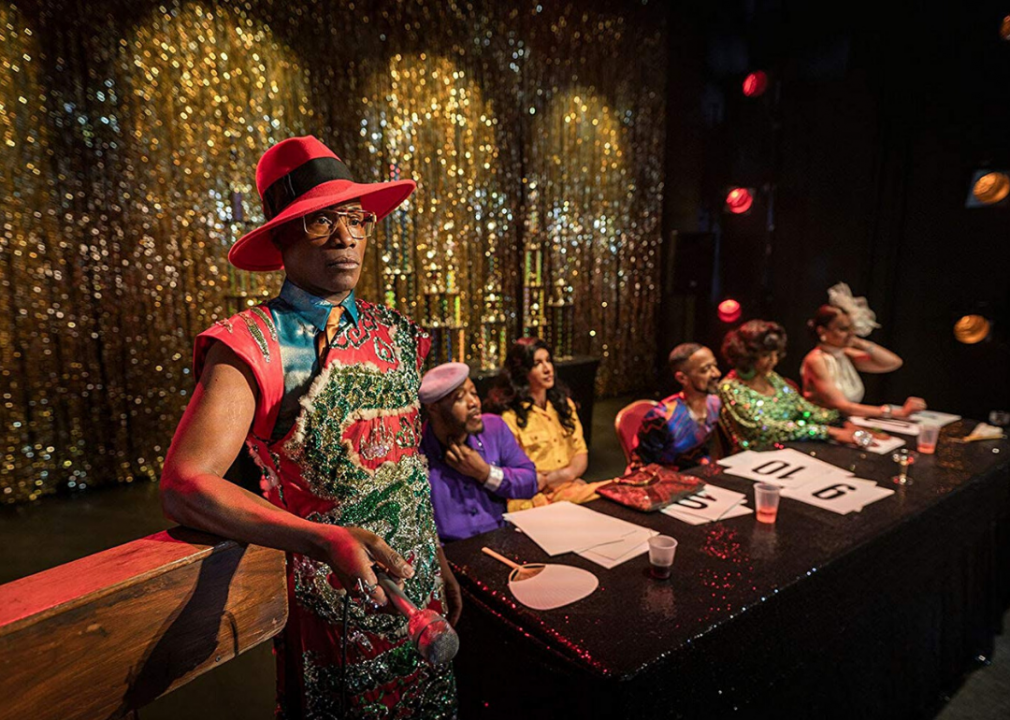
Color Force
To depict the ballroom voguing scene of the late 1980s and the early 1990s, "Pose" creator Ryan Murphy assembled an authentically queer and transgender cast that includes Emmy winner Billy Porter and trans performers Mj Rodriguez, Dominique Jackson, and Indya Moore.


